Smoke Camp
The original plan was for an outdoor rock festival, “three days of peace and music” in the Catskill village of Woodstock. What the young promoters got was the third largest city in New York state, population 400,000 (give or take 100,000), location Max Yasgur’s dairy farm near the town of White Lake. Woodstock, the actual music festival, didn’t take place in Woodstock, New York, as everyone thought.
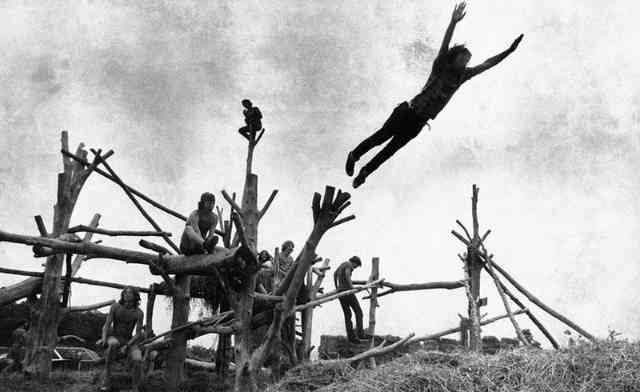
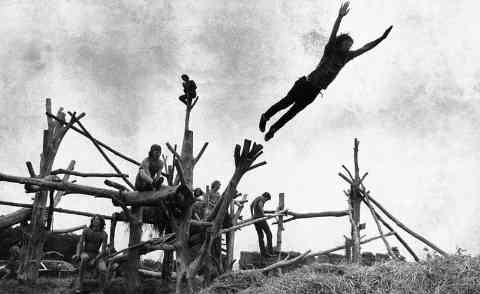
It actually occurred in the Town of Bethel, which is nearby. Here you can see people setting up driftwood and what looks to be practicing their crowd surfing into a pile of hay.
This is an image of one of the makeshift ‘smoke camps’ that hippies erected during Woodstock. Here they openly smoked marijuana and hash, sharing with those around them.
The Daily Farmers Festival
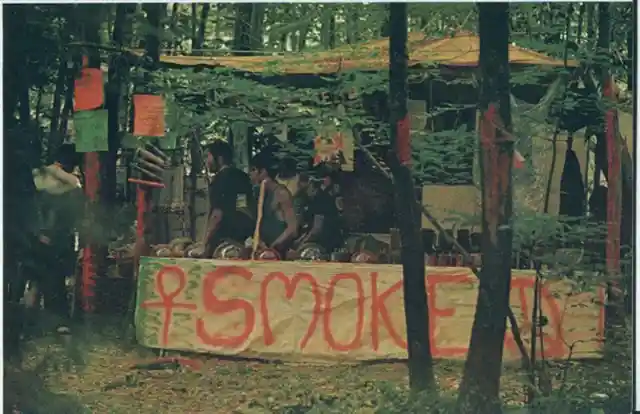
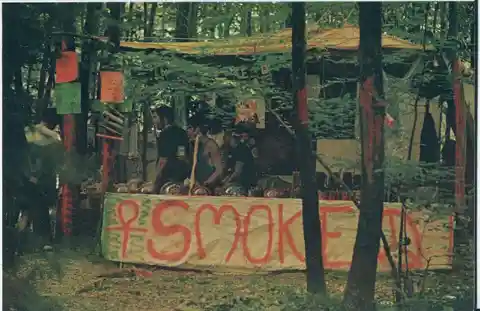
People would use these smoke camps to meet new people and share stories.
Hitchhiking 101
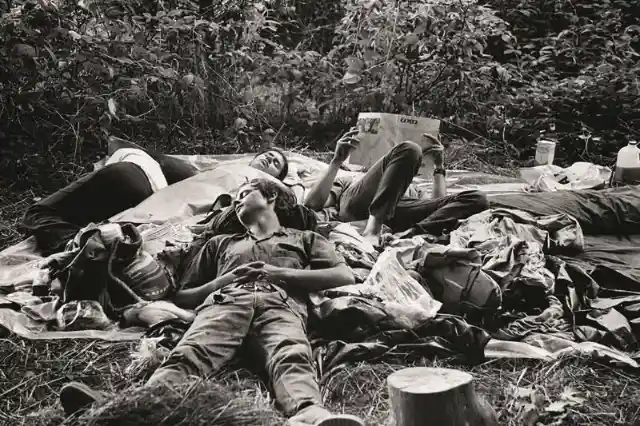
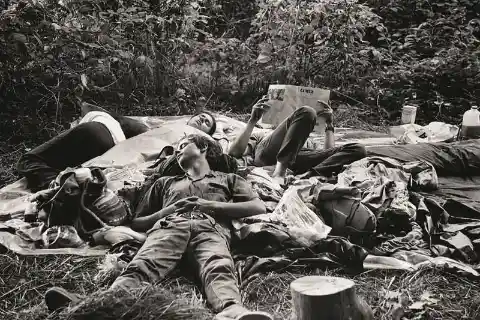
Sullivan County dairy farmer Max Yasgur agreed to have the festival on his property after original permits were revoked a month before the festival date.
Street Jams
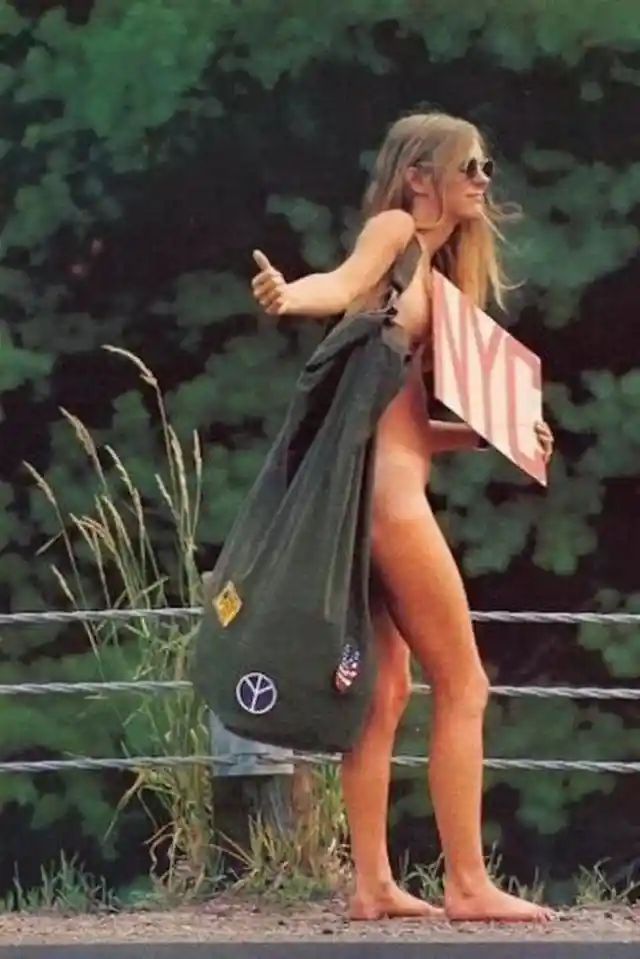
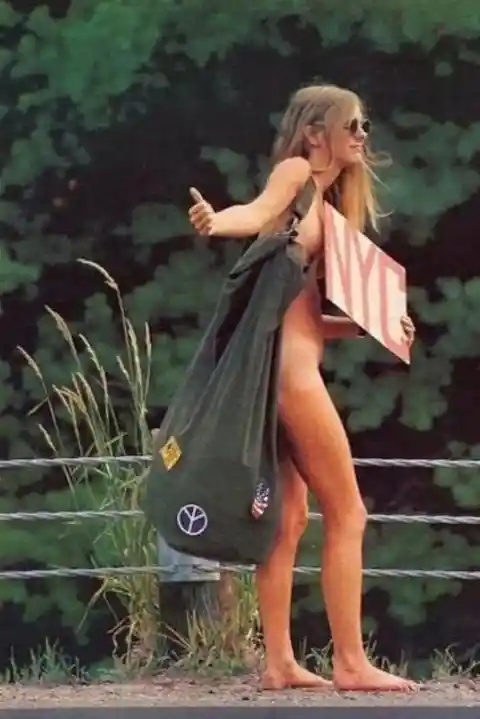
Beatniks, hippies, flower children and rock legends gathered together not in Woodstock, but in the little town of Bethel, rural New York State
The idea for the festival came from band manager Michael Lang and Artie Kornfeld, a songwriter turned record company executive.
Richie Havens
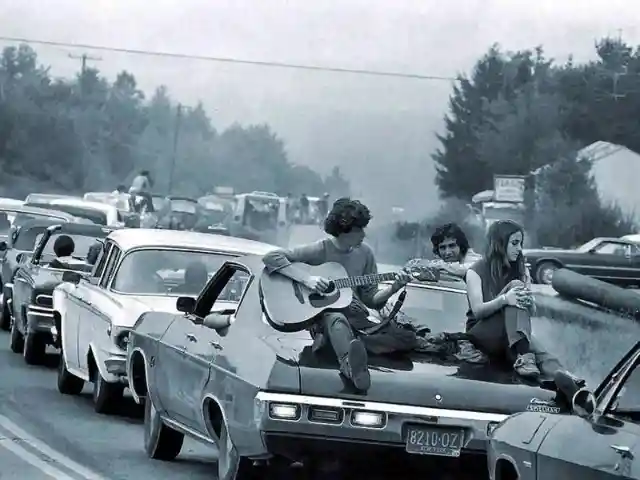
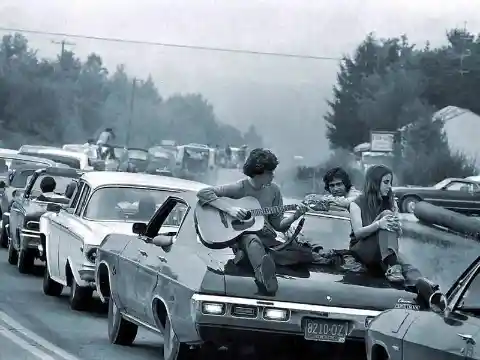
They wanted to raise money to build a recording studio in Woodstock, upstate New York, a haven for artists including Bob Dylan, The Band, and Van Morrison.
Richie Havens was the opening act for the festival. There was no suitable site in Woodstock, so organizers opted for Wallkill, 40 miles away.
Young Hippie
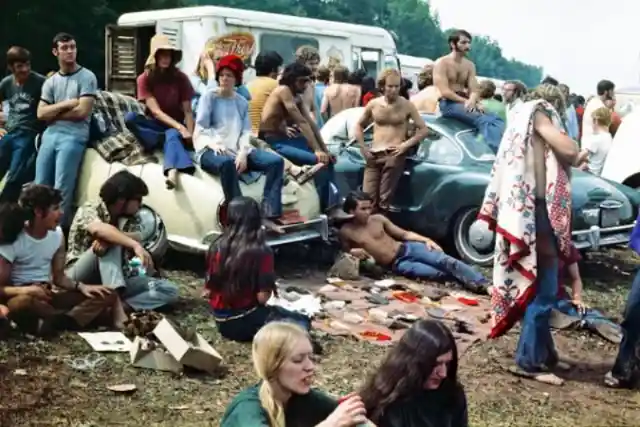
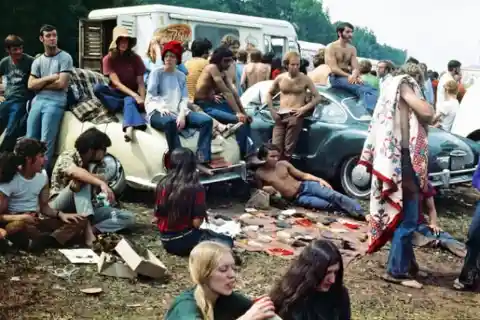
But residents blocked their plans, so dairy farmer Max Yasgur stepped in to offer his alfalfa field, in the neighboring hamlet of Bethel. A deal was struck for $75,000.
The Closing
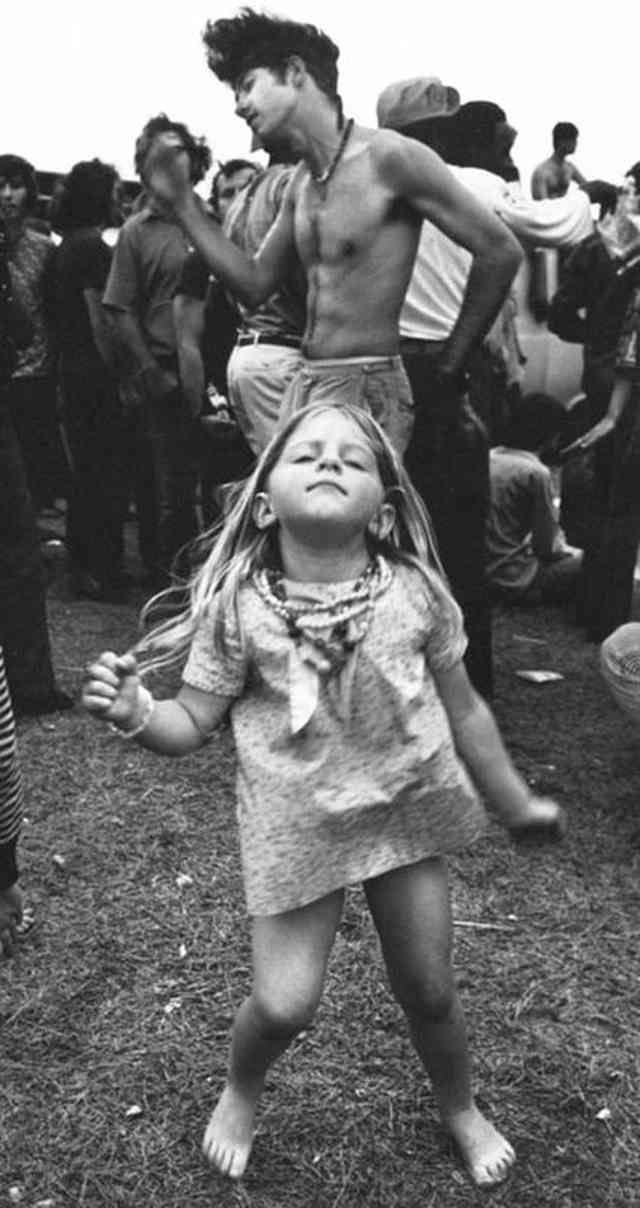
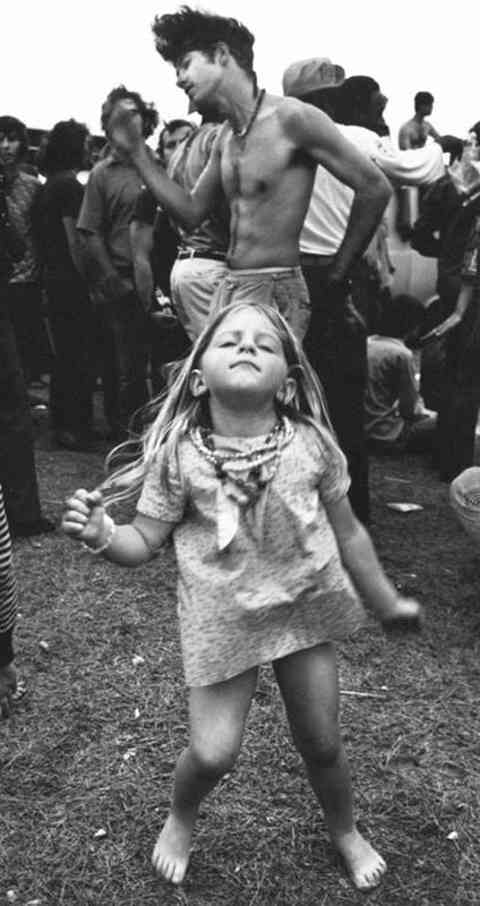
Melanie Safka (remember 'I've got a brand new pair of rollerskates'?) failed to get a performer's pass and had to sing her song, Beautiful People, to the security guards to get backstage.
Jimi Hendrix closed the festival. Joni Mitchell wrote the festival's eponymous song, with the lyrics 'We are stardust we are golden', from what she heard of the event from then-boyfriend Graham Nash, ex-Hollies and one-quarter of Crosby, Stills, Nash & Young.
Jeff Beck Group
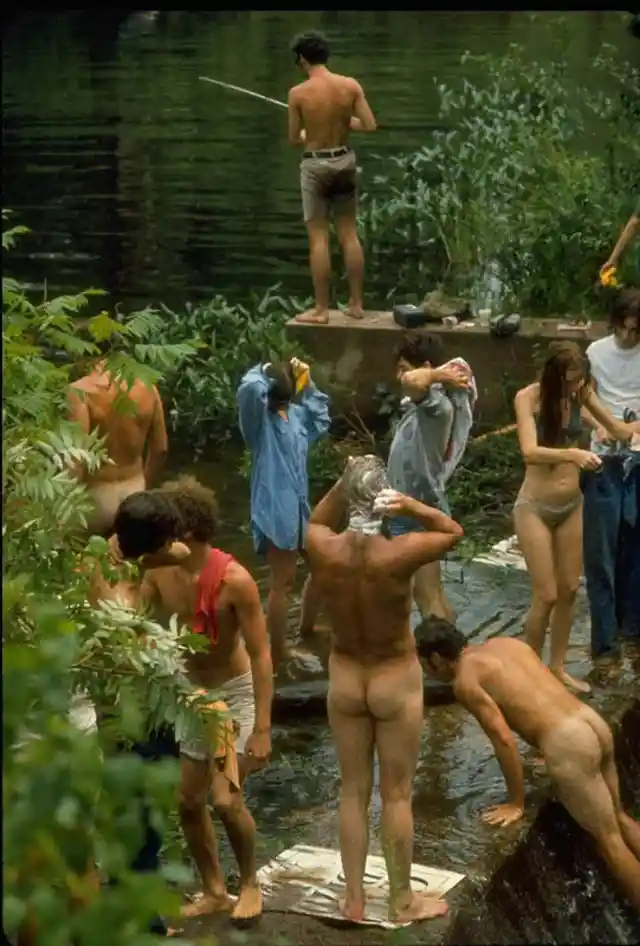
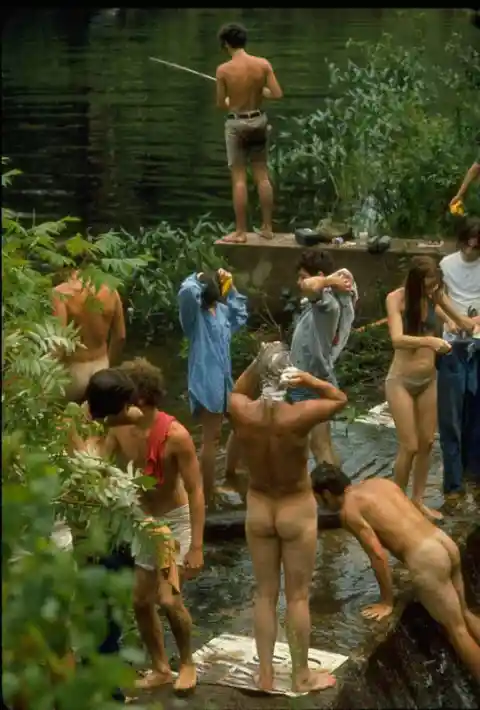
But she never made it to Woodstock. Taking the advice of her manager, she chose to guest on the Dick Cavett Show and then watched the festival unfold on TV, tears streaming down her face.
Merchandise
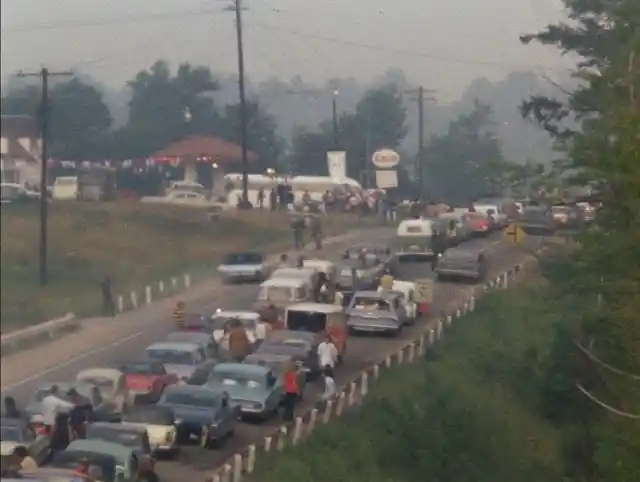
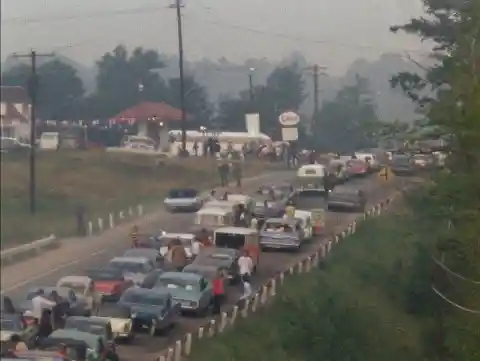
The Jeff Beck Group who featured Jeff Beck, Rod Stewart, Ronnie Wood and Aynsley Dunbar broke up only weeks before the festival which they were scheduled to play.
There was no official Woodstock merchandise sold at the Woodstock festival.
Cocker
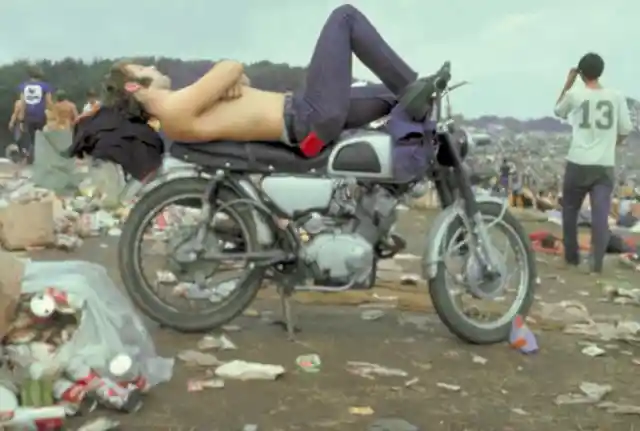
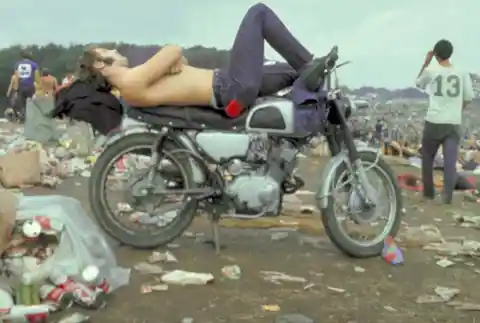
Thus, there were no additional sources of profit, making this festival among the few that survived solely on tickets sold.
The outdoors
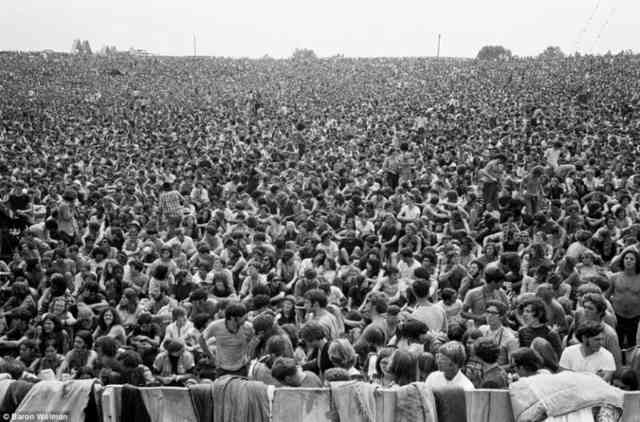
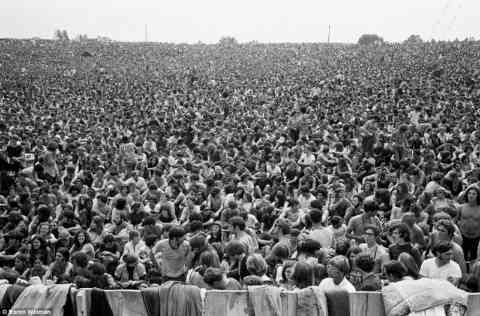
The British artist who really made his mark was Joe Cocker, whose soulful rendition of The Beatles song With A Little Help From My Friends was one of the greatest performances.
32 acts performed outdoors throughout a rainy weekend. Additionally, the performance of The Star-Spangled Banner by Jimi Hendrix that closed Woodstock was described by the rock critic from the New York Post as 'the single greatest moment of the Sixties'.
Hippie Origins
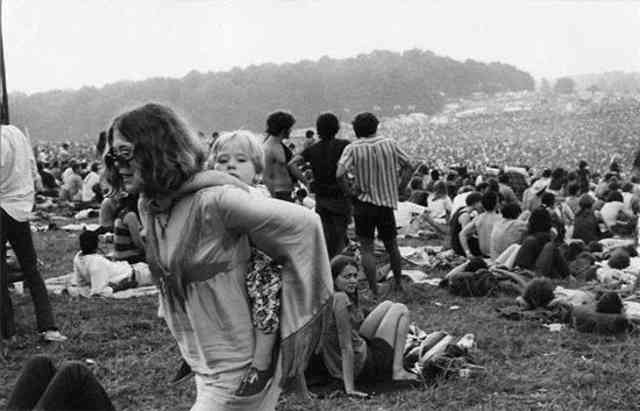
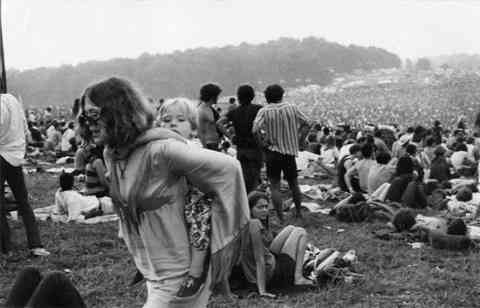
Yet it was witnessed by just a fraction of the crowd. Most had gone home by the time Hendrix came on stage, at 9 am on a Monday morning.
'Hippy' is derived from 'hipster' and was used to describe beatniks who moved to San Francisco's Haight-Ashbury district for the Summer of Love in 1967.
The Who and Company
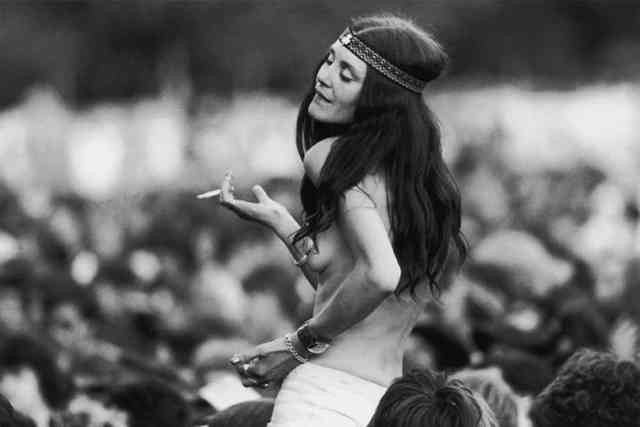
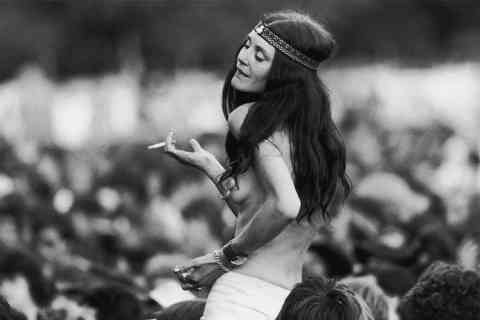
Yippies (the left-wing Youth International Party led by Abbie Hoffman) were sufficiently motivated by money to demand $10,000 from Woodstock's organizers to avoid any unpleasant disruption of proceedings.
400,000 attended the 3-day festival.
Potential Violence
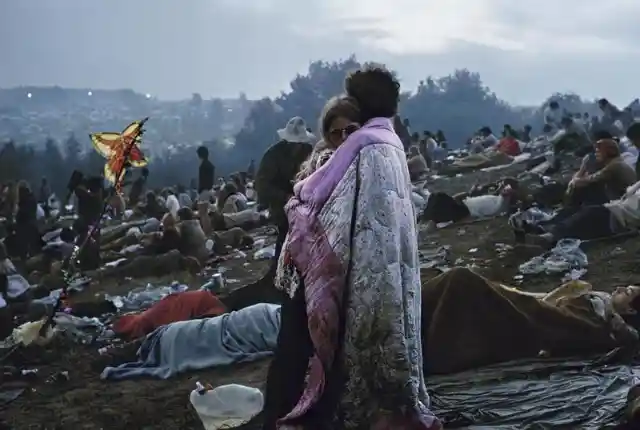
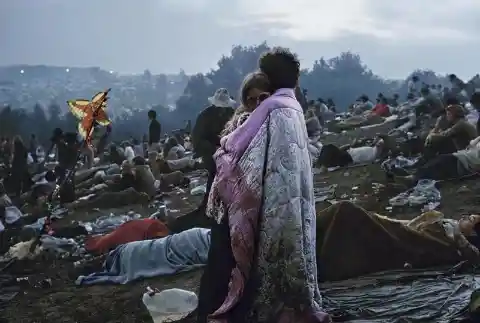
The British artists were represented by Ten Years After, The Who, The Incredible String Band, the Keef Hartley Band, Graham Nash and Mitch Mitchell, drummer in Jimi Hendrix's band.
Thirty-two bands were listed to play, but Iron Butterfly got stuck at the airport and didn't make it because the helicopter booked to ferry them to the site didn't arrive.
Imagine
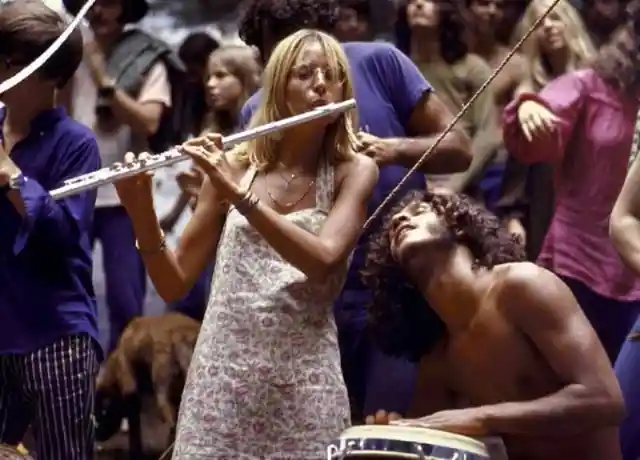
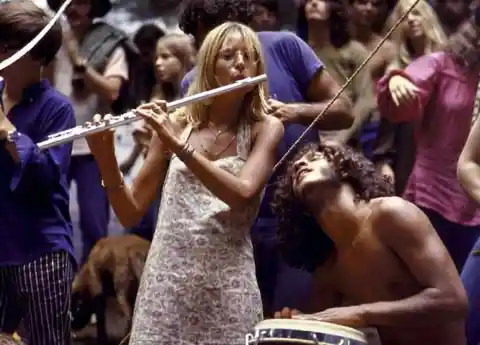
Organisers were, in fact, worried their hippy heavy-metal music would incite violence.
John Lennon told organizers he had wanted to be a part of Woodstock, but he was in Canada and the U.S.
Jeans
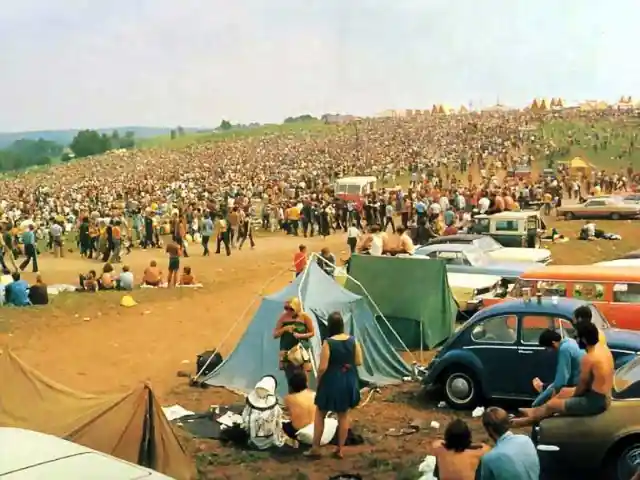
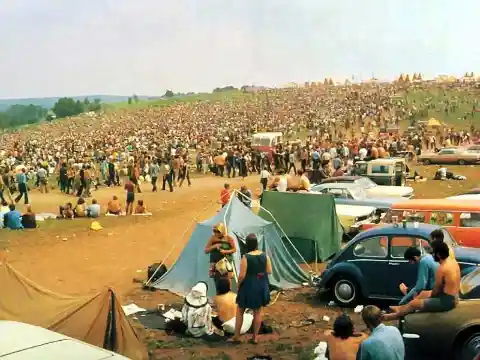
government had refused him an entry visa.
Oscar
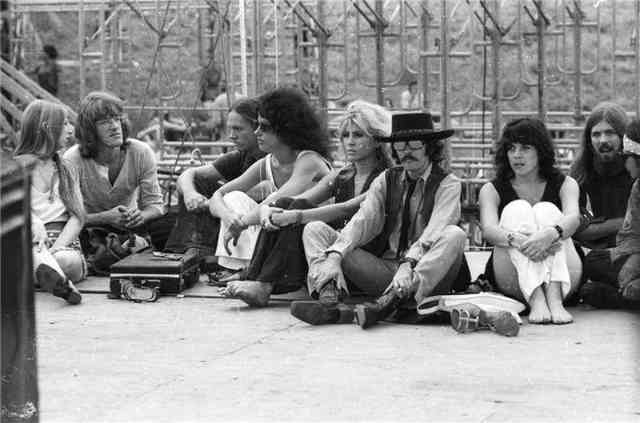
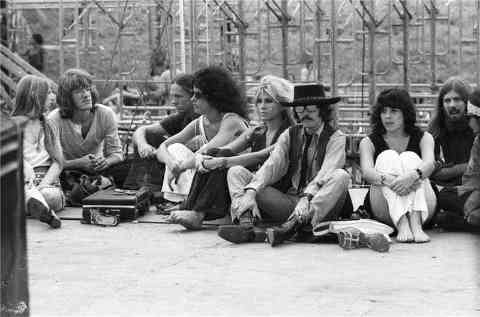
There were ten million yards of blue jeans and striped T-shirt material at Woodstock.
"Woodstock" won the Best Documentary Oscar in 1970. The dove perched on a guitar neck in the famous poster announcing 'Three Days of Peace and Music' is really a catbird, an American perching bird known for its catlike calls.
Bob
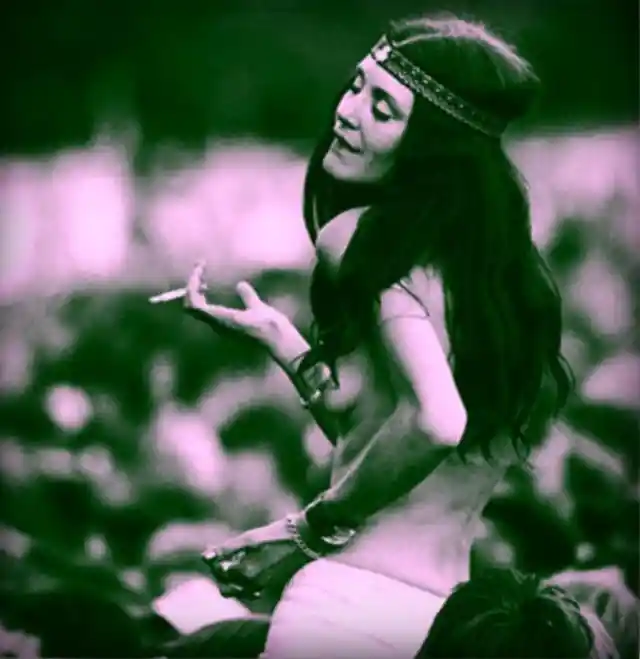
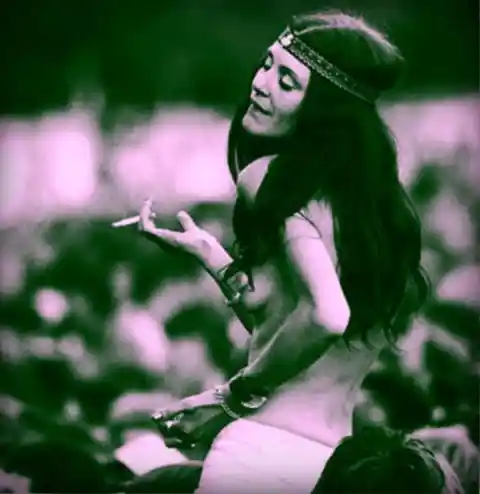
Clearly, these slogans served as a determinant factor since they directly inspired the documentary.
The $75,000 Deal
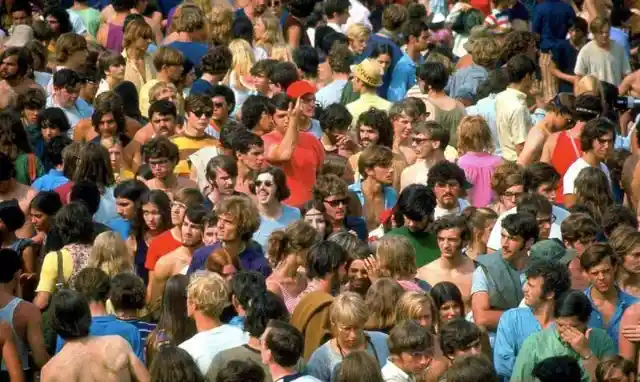
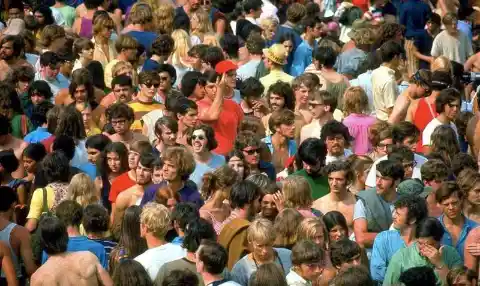
Though Bob Dylan was one of the original inspirations for the festival, and his backing group, The Band, played to the massive audience, the great man never made it, as one of his children was hospitalized over that weekend.
Vertigo
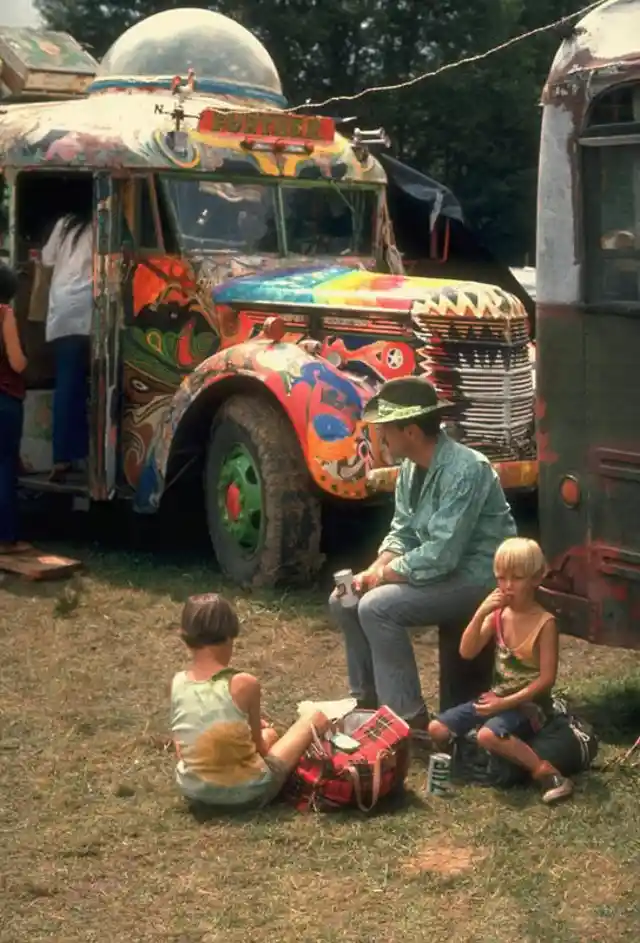
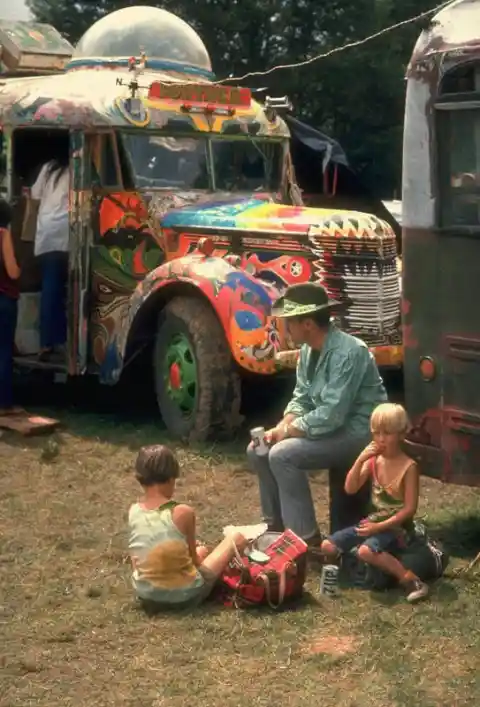
A deal was struck for $75,000 with the dairy farmer Max Yasgur.
Scottish folk quartet The Incredible String Band told writer Mark Ellen about appearing on the Woodstock stage. 'It was incredibly high and three out of the four of us had vertigo.
Miscarriages
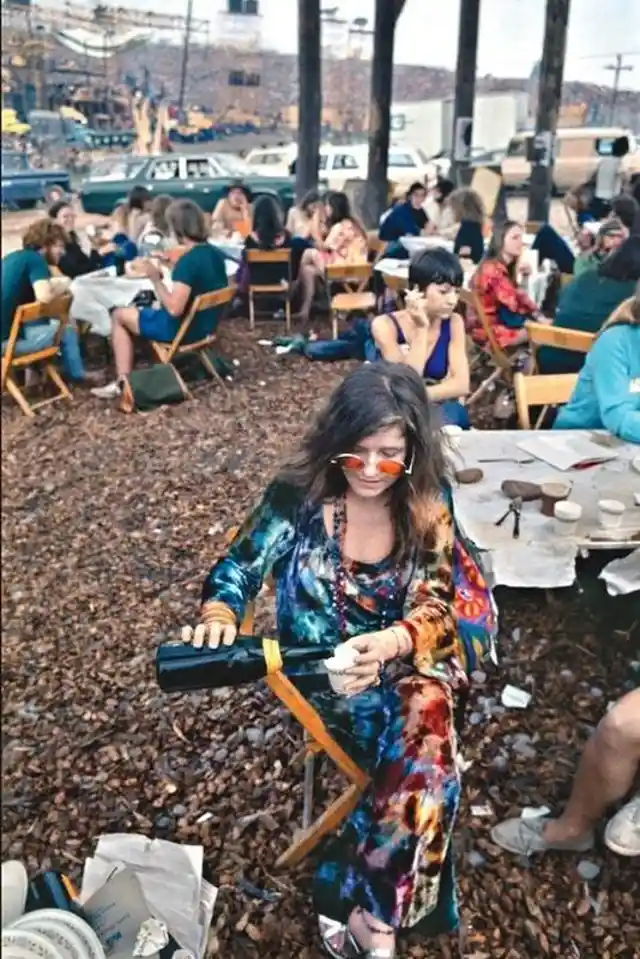
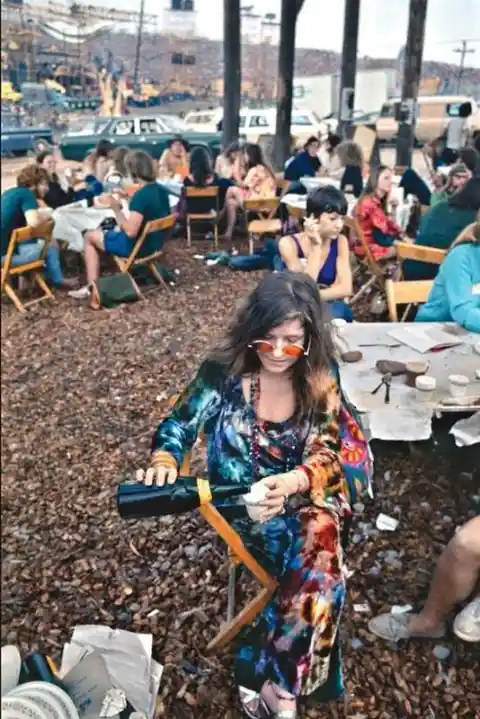
Little flimsy dresses on the girls, acoustic guitars out of tune, the drums damp from the tent, it was like playing off the Forth Bridge to this sea of people cooking beans in the mud.'
Eight women suffered miscarriages, while there are varying reports of babies born.
A Weekend in the Country
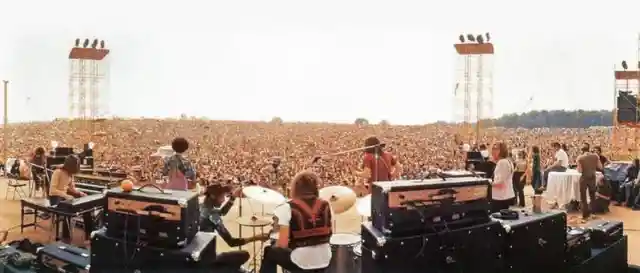
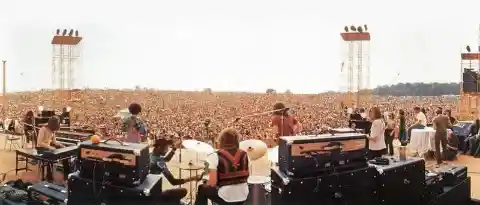
John Sebastian, the lead singer with Lovin' Spoonful, announced from the stage: 'Some cat's old lady just had a baby, a kid destined to be far out!' Reports suggest a birth at a local hospital to a mother flown from the event by helicopter and another involving a woman in a car in the nine-mile traffic jam
The organizers played down the numbers they anticipated, telling the authorities they expected 50,000 while selling 186,000 tickets in advance (costing six dollars for each day) and planning for 200,000. In the end, 500,000 attended.
Woodstock Ventures
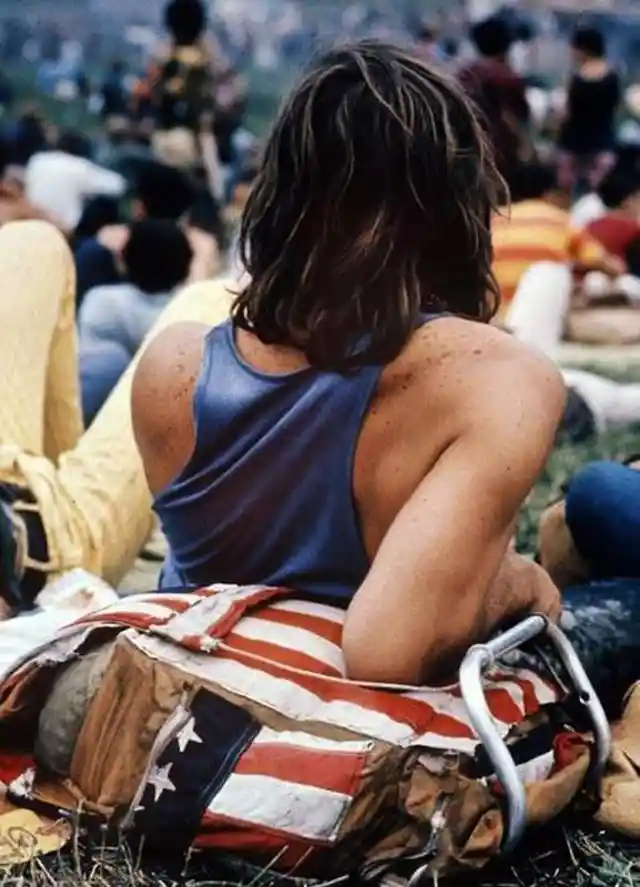
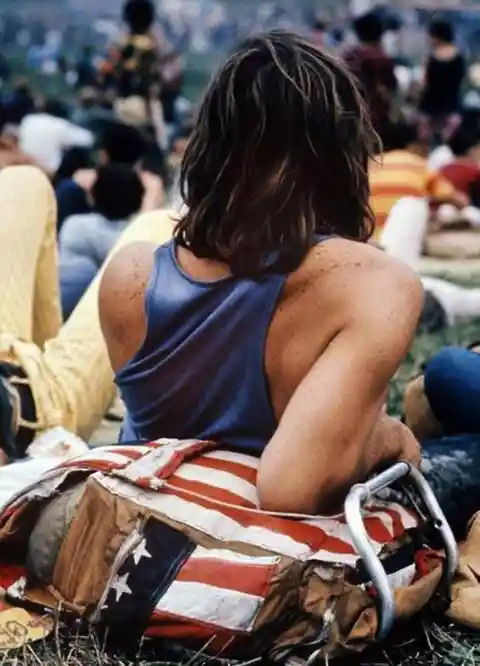
Another million had to turn back because of traffic. It was originally advertised as 'A Weekend in the Country."
As an unknown and unproven business concern, the organisers, Woodstock Ventures, had to pay inflated sums to get the top rockers to sign up. Jefferson Airplane were the first, paid $12,000, double their usual fee.
Hog Farm
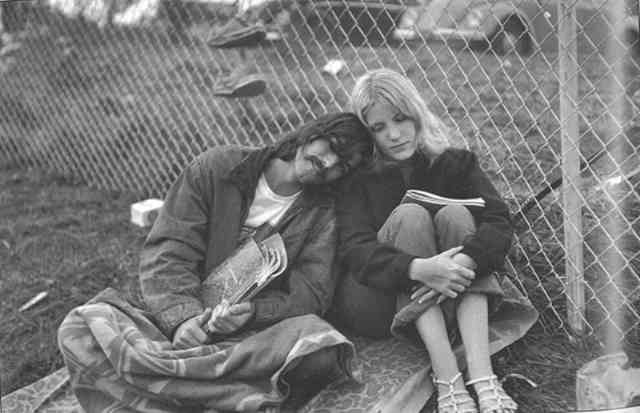
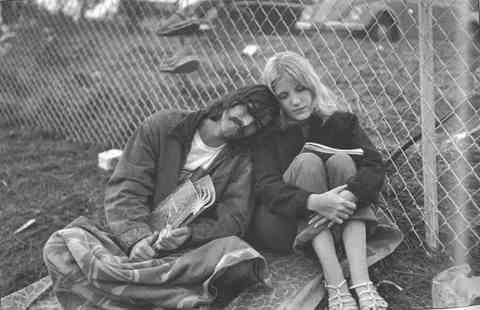
Even hippy band The Grateful Dead demanded cash in hand before they would play, as did Janis Joplin and The Who.
Freedom
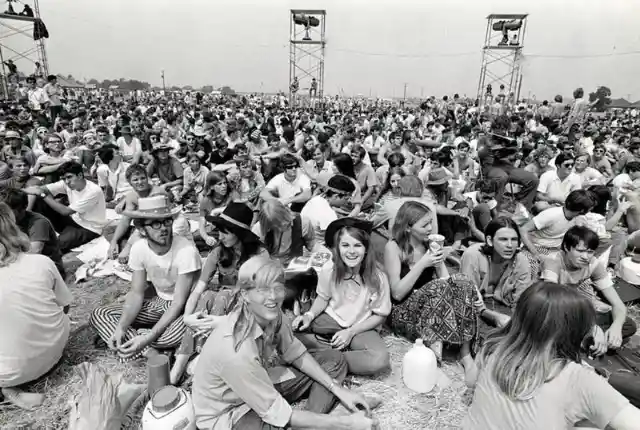
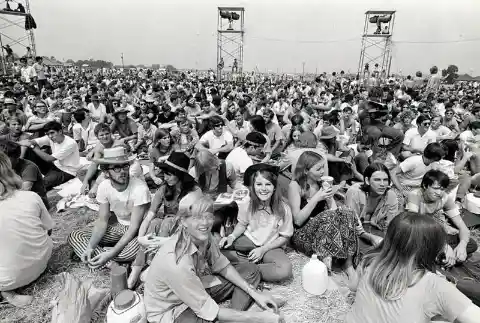
Off-duty police officers were banned from providing security, so a New Mexico commune known as the Hog Farm were hired to form a 'Please Force.' The Hog Farmers were led by Wavy Gravy, a toothless former beatnik comic, who put on a Smokey-the-Bear suit and warned troublemakers they would be doused in fizzy water or hit with custard pies.
About two dozen ticket booths should have been in place to charge $24 admission, but they were never installed because of the crush of festival-goers.
Freedom Pt. II
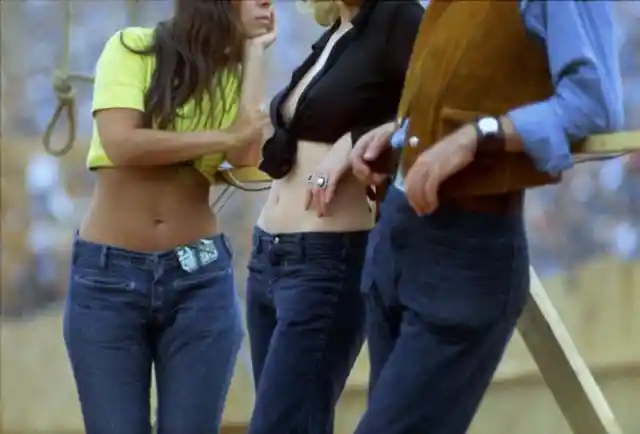
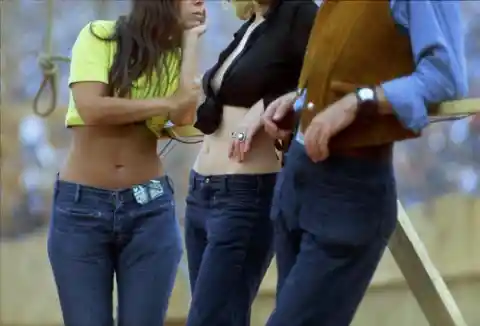
Attempts to get people to pay were abandoned on day one, the fences were torn down and Woodstock was declared a free event.
As well as forming the Please Force, The Hog Farm was in charge of catering, ordering in bushels of brown rice, buying 160,000 paper plates, forks, knives and spoons and 30,000 paper cups.
Capitalist Exploitation
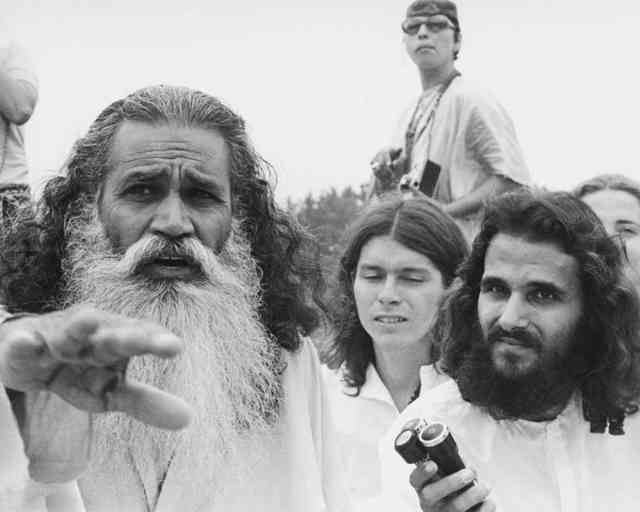
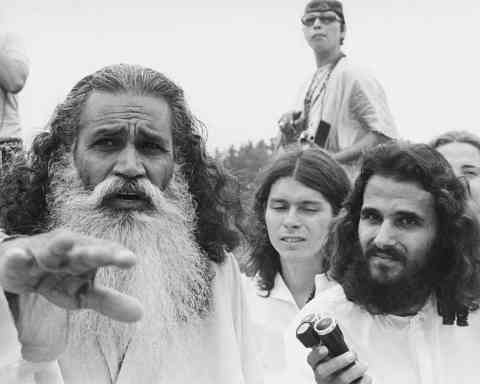
They fed between 160,000-190,000 people at the Hog Farm Free Kitchen, 5,000 at a time.
The Food For Love concession was running low on burgers so it raised prices from 25 cents to $1.
Jewish Community
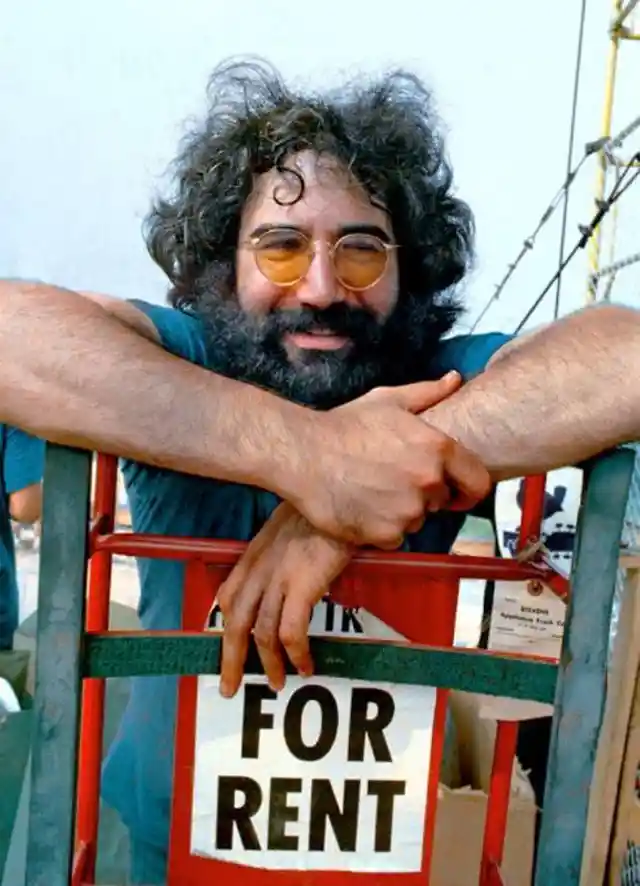
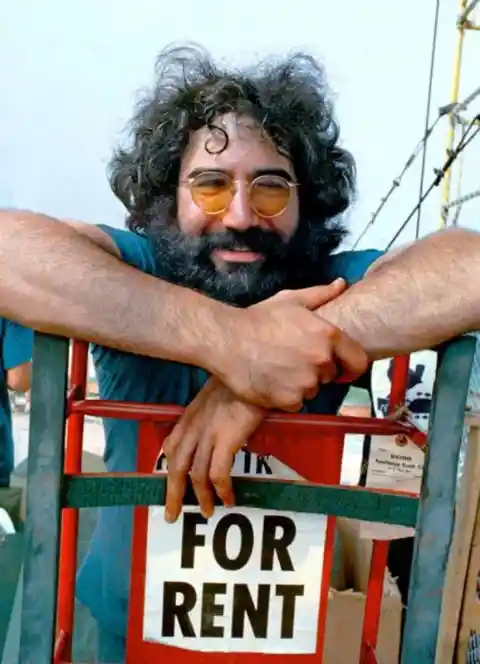
Festival-goers saw it as capitalist exploitation, against the spirit of the festival, so burnt the stand down.
Sweetwater
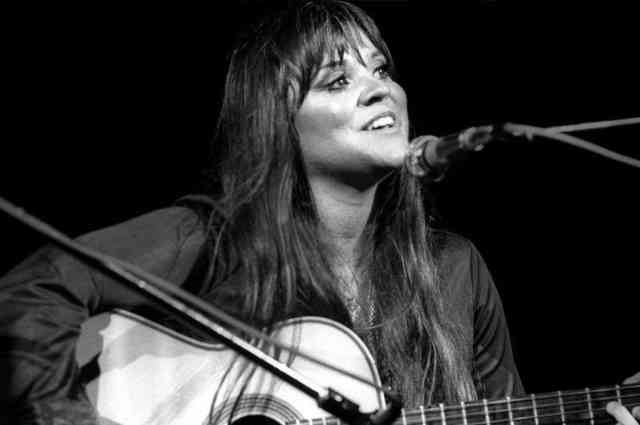
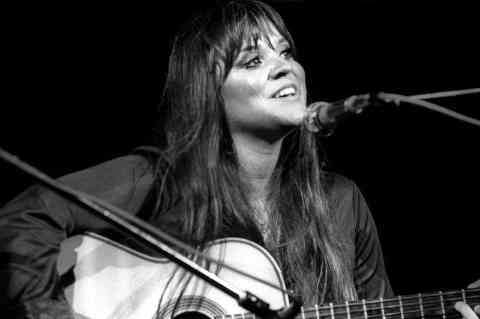
Hearing there was a shortage of food, a Jewish community center made sandwiches with 200 loaves of bread, 40 pounds of meat cuts and two gallons of pickles, which were distributed by nuns.
Sweetwater, a psychedelic rock band scheduled to open the festival, were stuck in traffic. Instead, the crowd was entertained by one of the Hog Farmers, who led them through a series of yoga exercises.
Tim Hardin
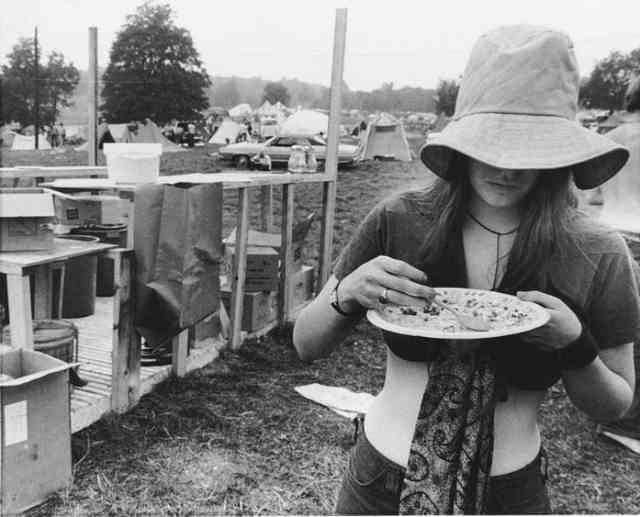
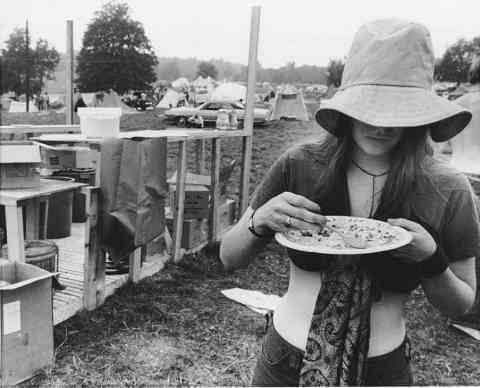
Sweetwater was on fifth.
With the festival start-time running over an hour late, there was panic to find a performer ready. Tim Hardin, (who later died of a heroin overdose), was too stoned, so Richie Havens went on.
War Protest
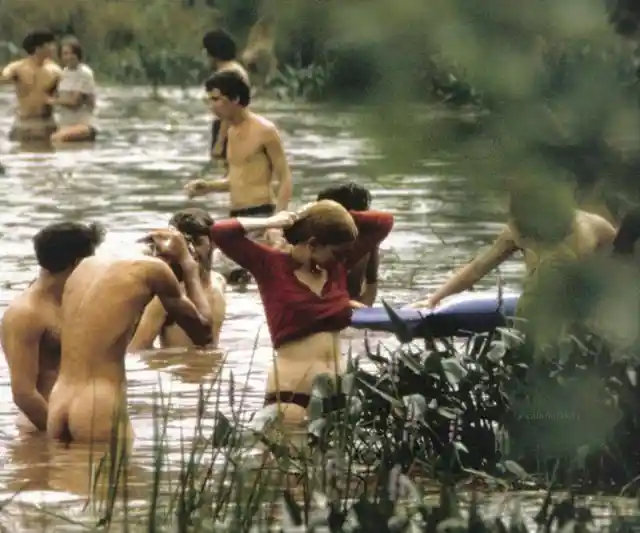
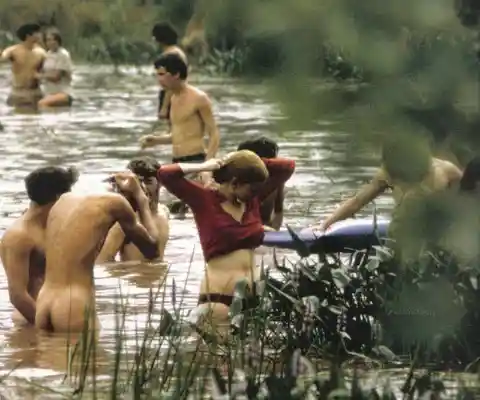
When Havens finished his set he kept trying to leave but was told to do more encores as the next band was not ready. His song Freedom was improvised and became a worldwide hit.
Though the festival mood was anti-war, ironically the festival would most likely have turned to tragedy without the U.S. Army, who airlifted in food, medical teams, and performers.
LSD
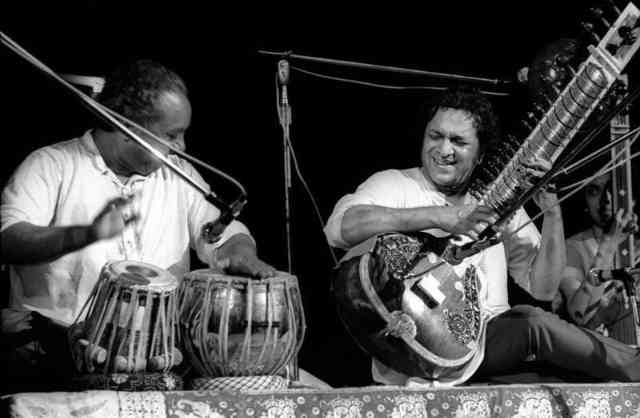
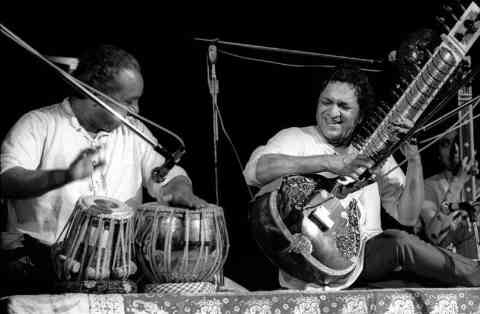
The hippy crowd was told: 'They are with us man, they are not against us. Forty-five doctors or more are here without pay because they dig what this is into.'
John Sebastian's performance was unexpected. Spotted visiting backstage, he was urged to appear. He admitted he had smoked a joint and taken LSD, which could explain his shambolic performance, shouting: 'Far out! Far up!
Minimization
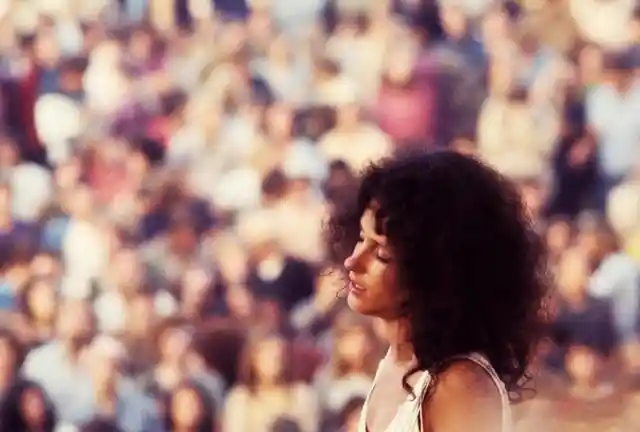
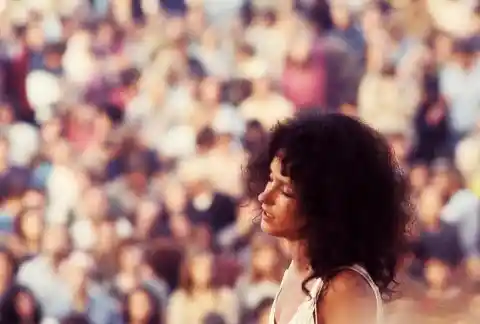
Far down! Far around! You're really amazing, you're a whole city.'
The revolving stage was designed to minimize wait-times, turning when one act finished with the equipment in place for the next one. But it could not support the weight of so many people on the side of the stage watching the performances, and the wheels fell off.
Gentle Path
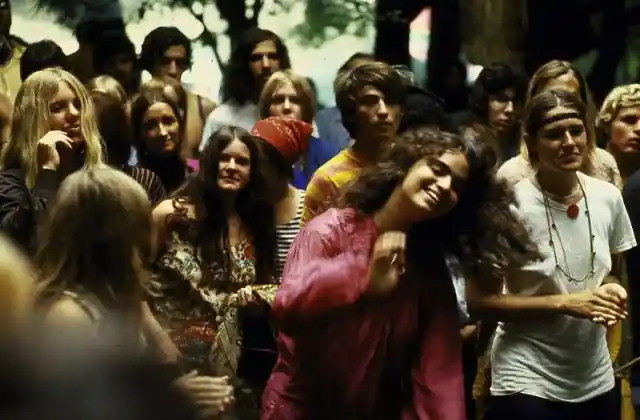
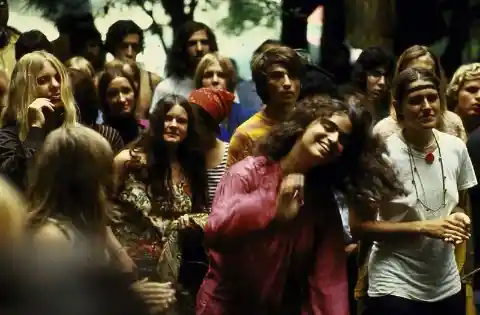
'Grace Slick and Janis Joplin and everybody was standing on it and you can't just sweep them off with a broom,' explained one of the crew.
For those lost and confused there were two wooden signposts nailed to a tree. Chalked on one was 'Groovy Way' with arrows in opposite directions.
False Advertising
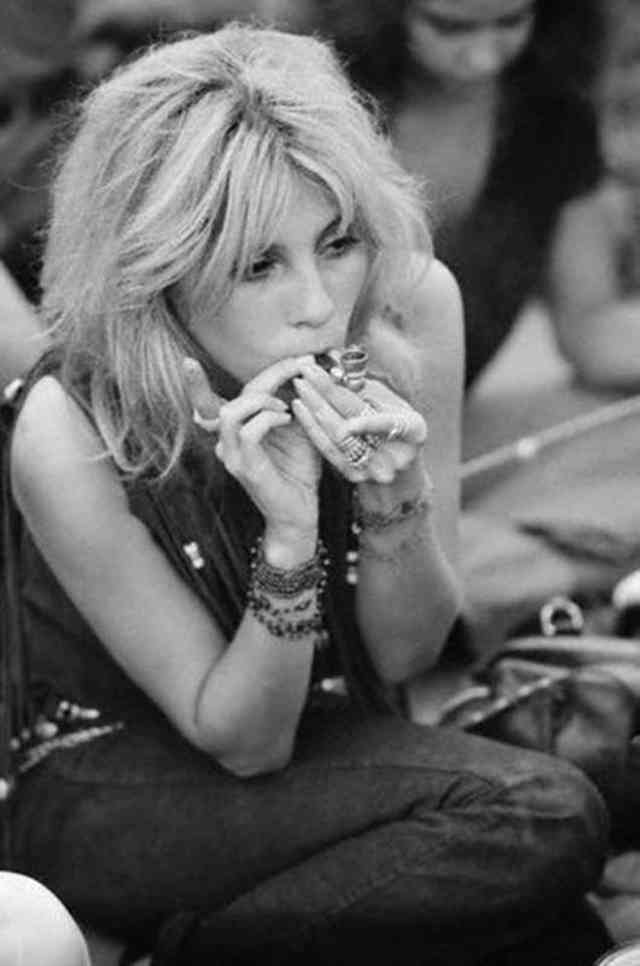
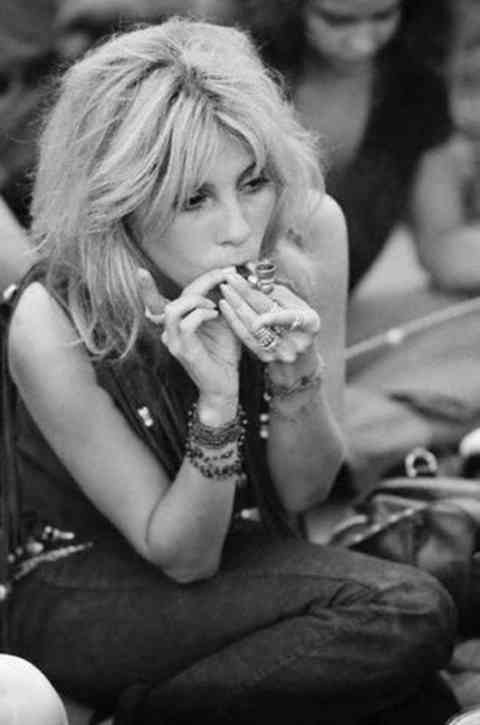
On the other was 'Gentle Path' and underneath 'High Way' pointing to the left.
Nine out of ten festival-goers smoked marijuana on site and 33 were arrested on drugs charges. This spawned a number of opinions and frighten potential goers.
Incidents
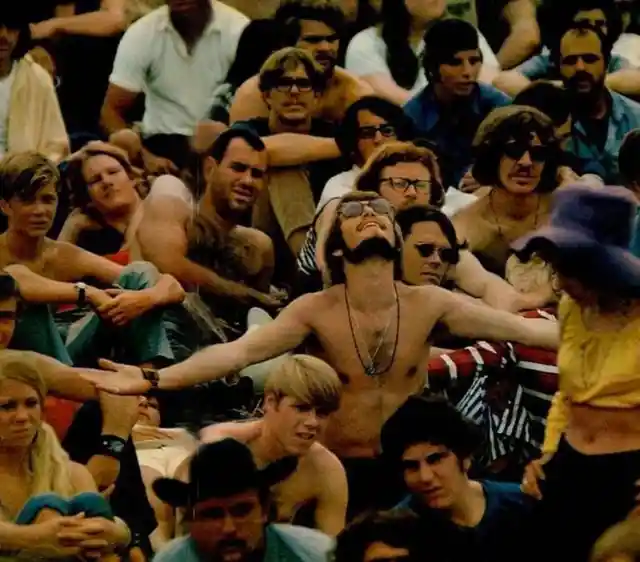
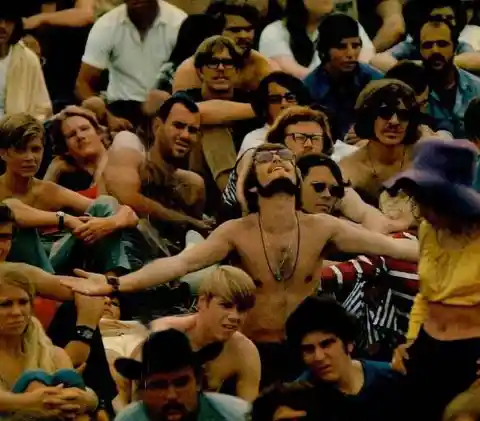
Furthermore, the majority of the international audience was confident that drugs and alcohol was the main reason why Woodstock existed.
Two people died at Woodstock - one man from a heroin overdose and a teenager in a sleeping bag who was killed when a tractor ran over him. The driver was never traced.
Peaceful Event
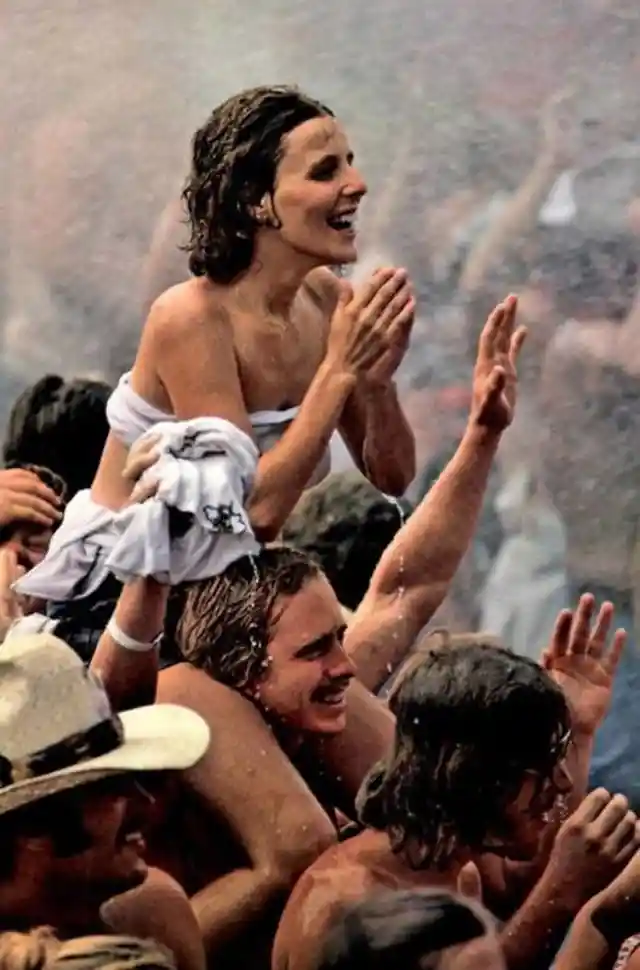
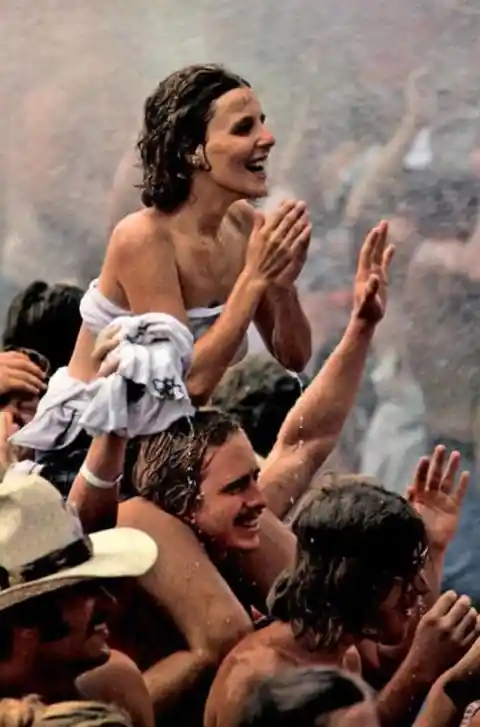
For the weekend of the festival, it had become the third largest city in New York State. But due to lack of basic amenities, Governor Nelson Rockefeller declared it a disaster area.
India references
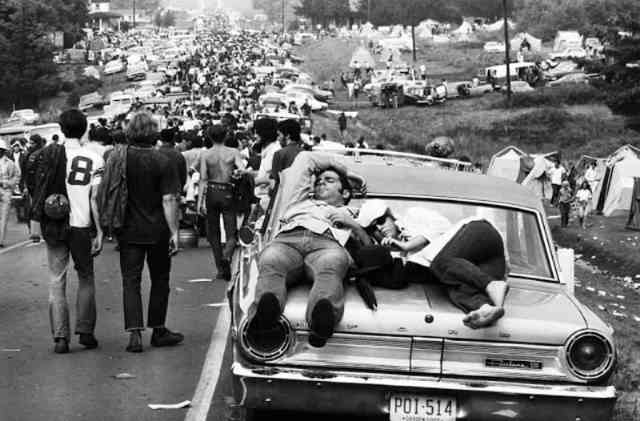
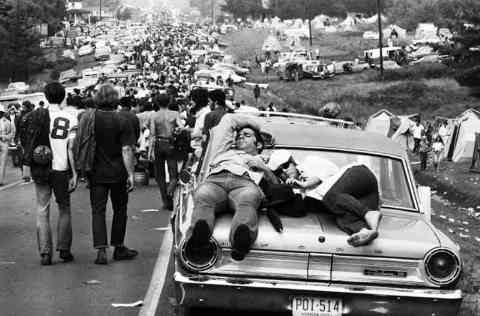
The health department documented 5,162 medical cases, including 797 instances of drug abuse. But Time magazine called it 'The greatest peaceful event in history.'
While most acts reveled in having appeared there, sitar player Ravi Shankar found it a 'terrifying experience' and said the crowd in the mud reminded him of the water buffaloes at home in India.
King of the Cowboys
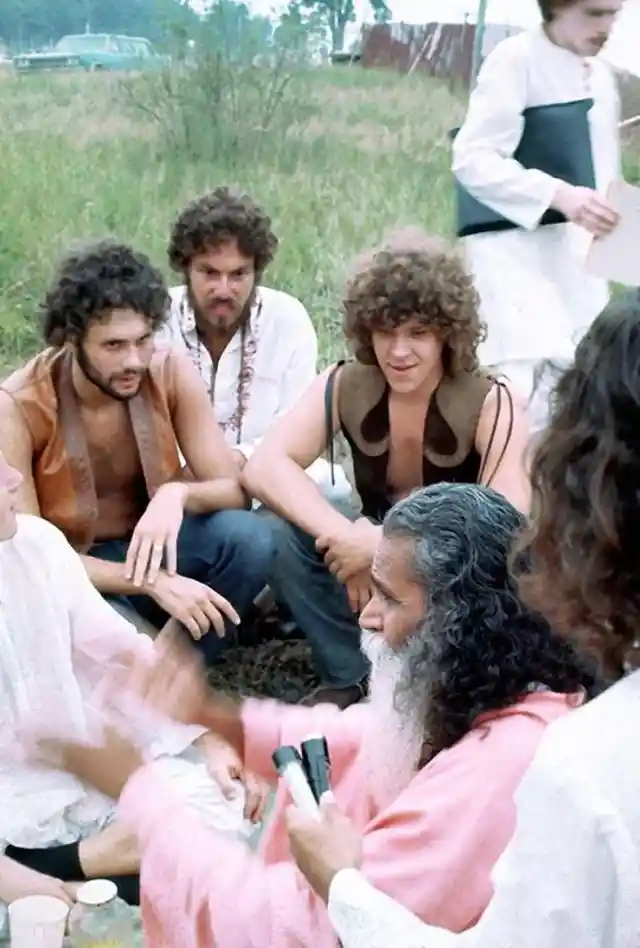
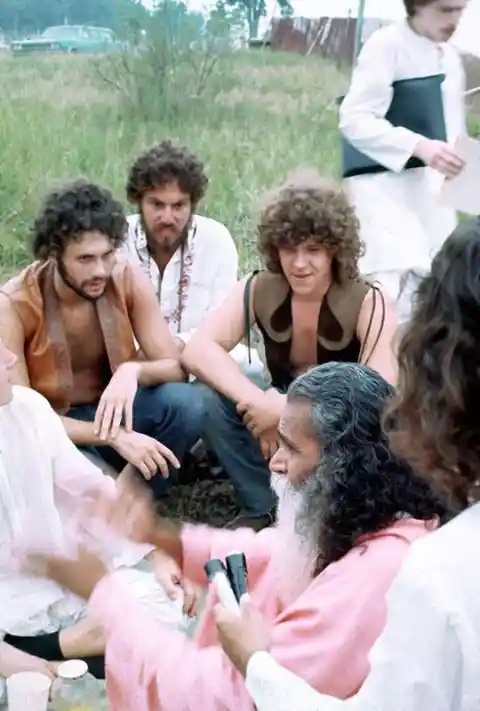
Actor and country singer Roy Rogers - billed as King of the Cowboys for his western movies - was asked to close the show, singing his trademark song, Happy Trails To You.
Europe
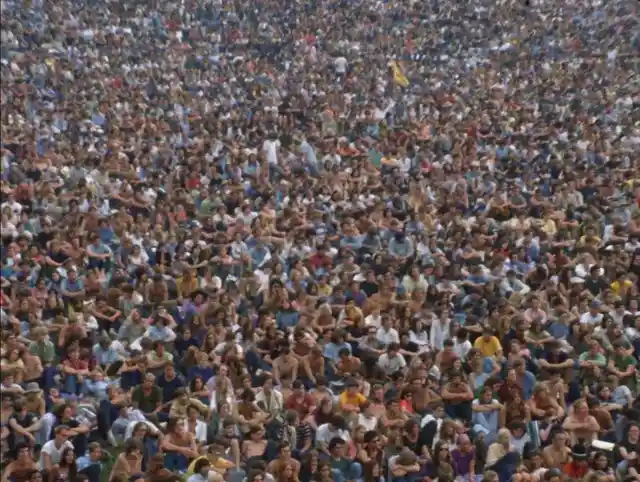
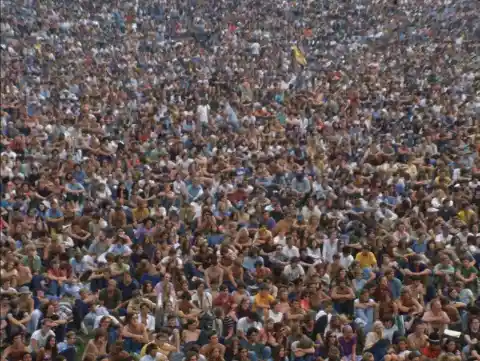
But Rogers' manager vetoed it, and years later Rogers admitted: 'I would have been booed off stage by all those goddam hippies.'
There have been four attempts to recreate the festival on different sites: in 1979, 1989, 1994, and the disastrous 1999 festival, which was shut down amid riots and violence. Commemorative events are taking place across America and Europe.
Debt
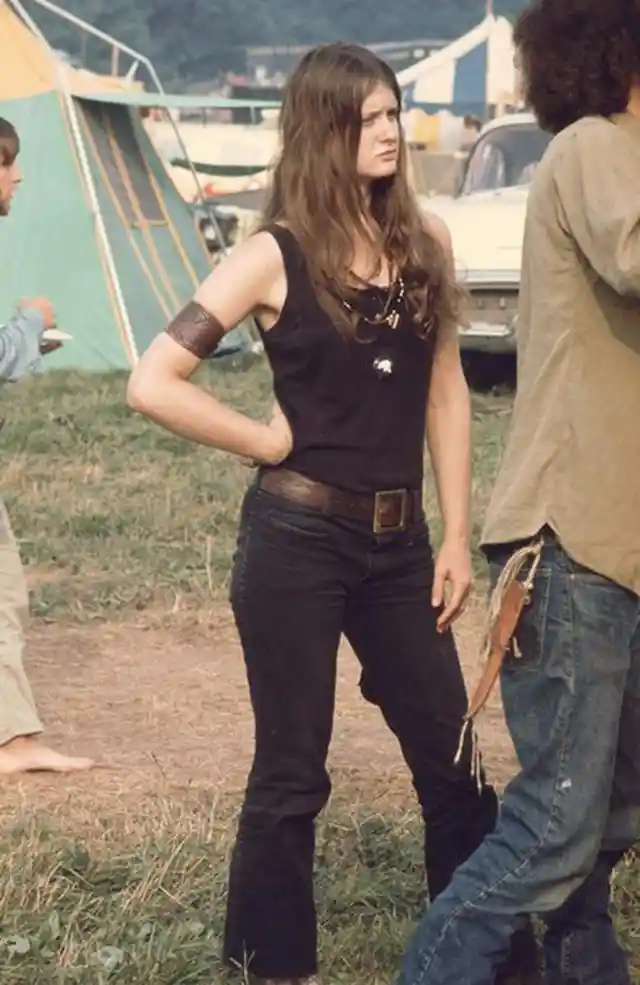
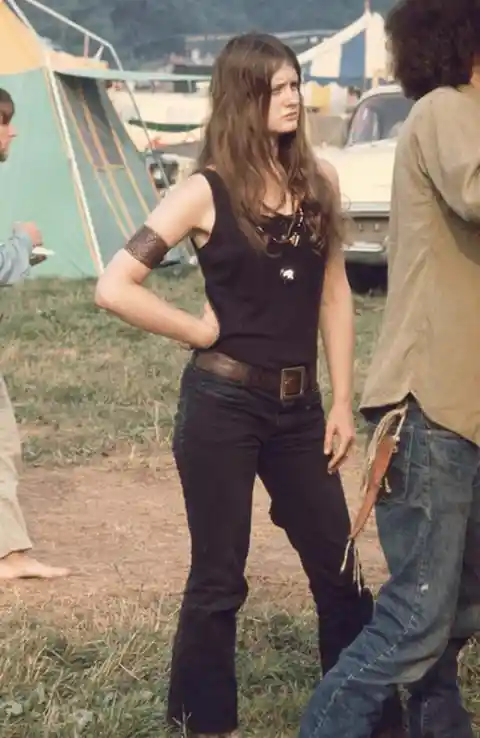
Organisers at Woodstock Ventures were at least $1.3m in debt afterward. It took more than a decade for backers to recoup money, through audio and recording rights.
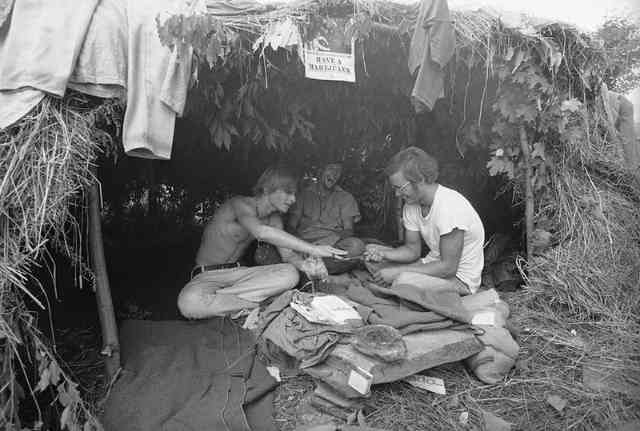
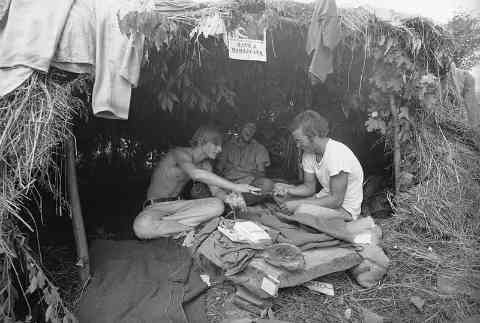
24.
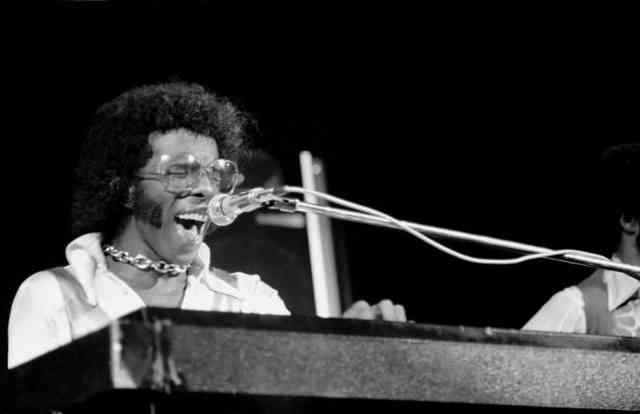
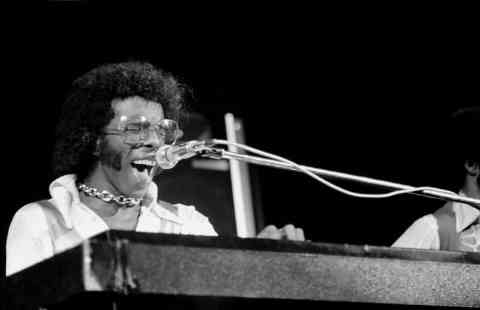
Hendrix and his new band, Gypsy Sun and Rainbows performed a two-hour set.
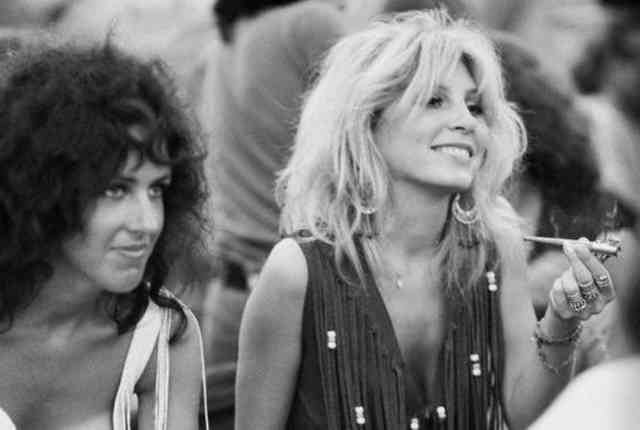
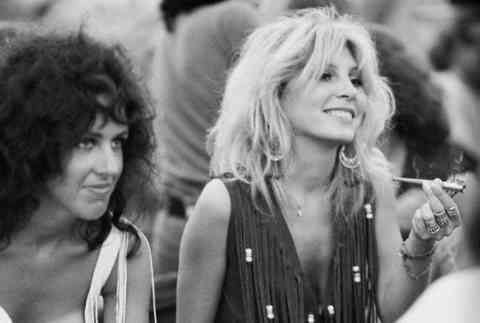
Engineers
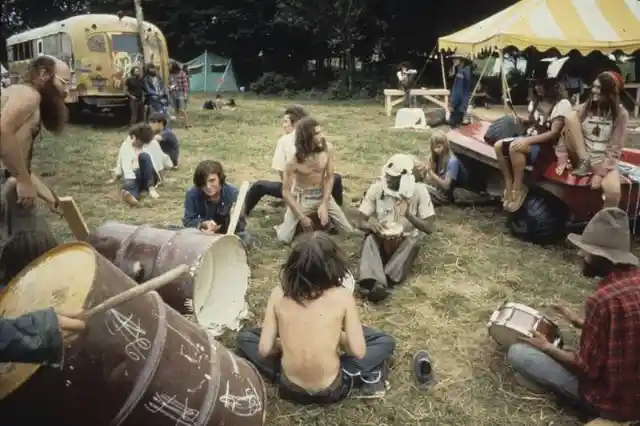
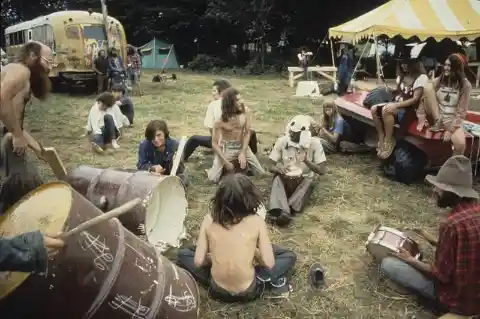
Bill Hanley was the sound engineer for the festival.
Fatalities
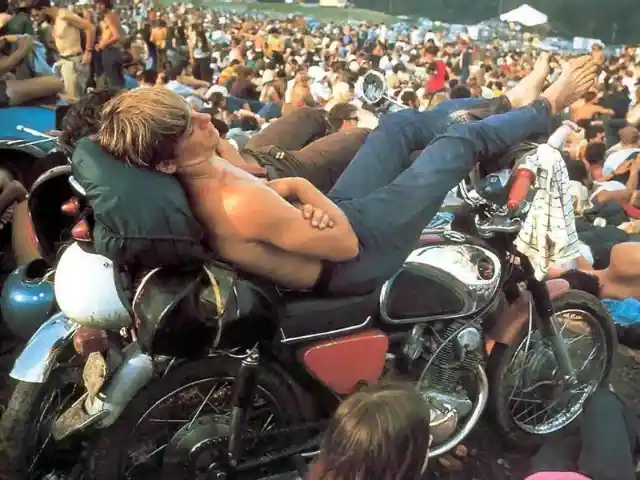
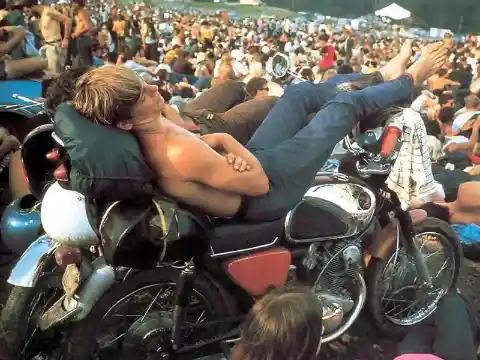
There were two recorded fatalities. One from a possible heroin overdose and another from an accident when a tractor ran over an attendee sleeping in a nearby hayfield.
Time stood still
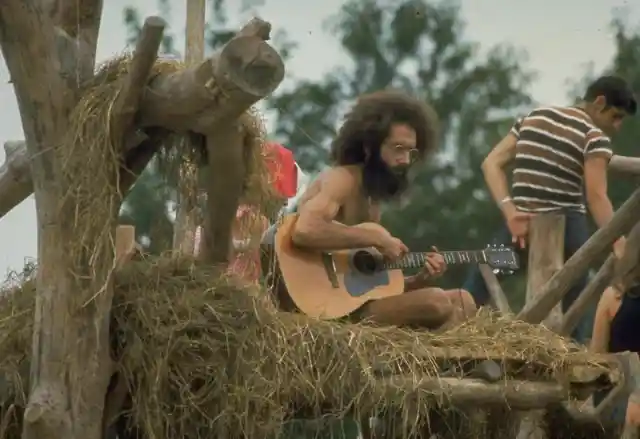
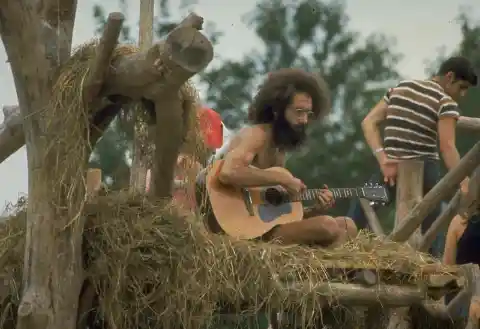
The trio
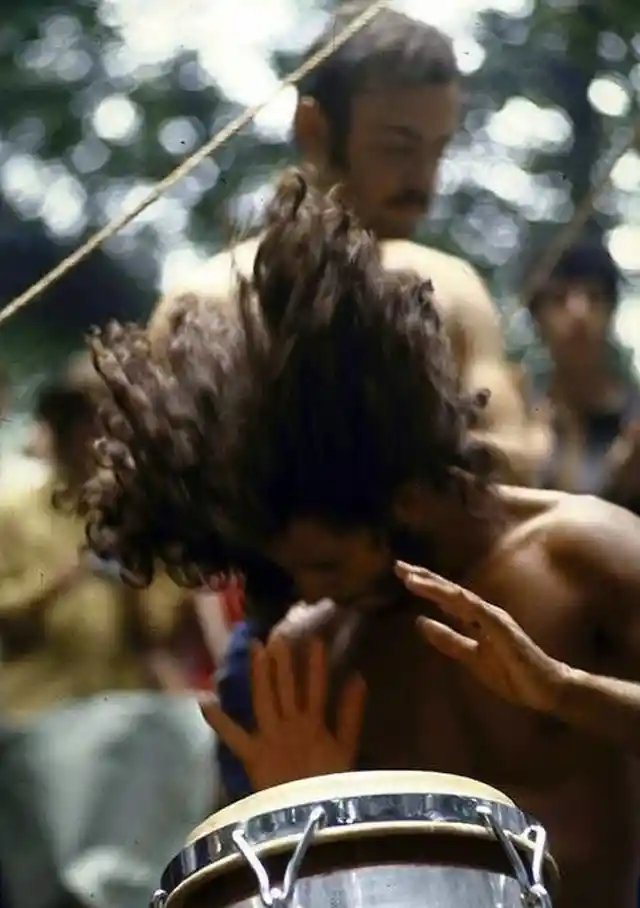
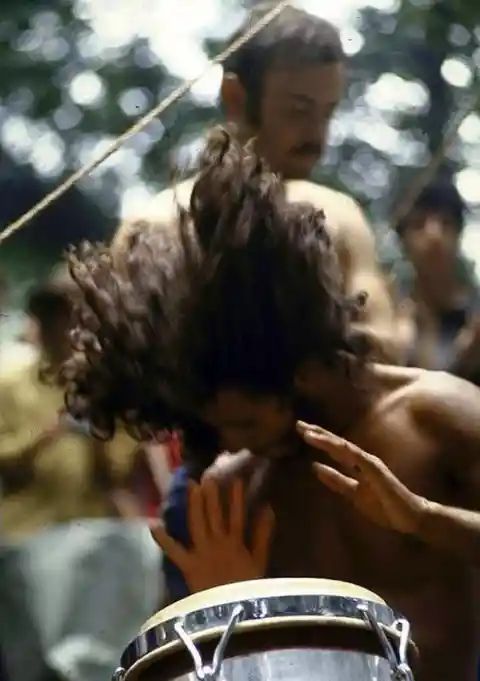
Woodstock was organized by Michael Lang, John Roberts, Joel Rosenman, and Artie Kornfeld.
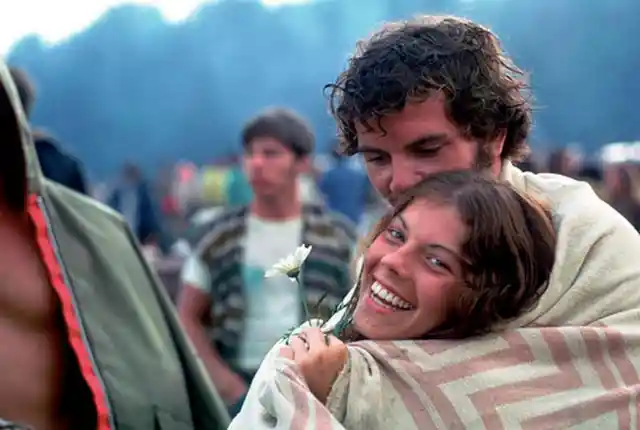
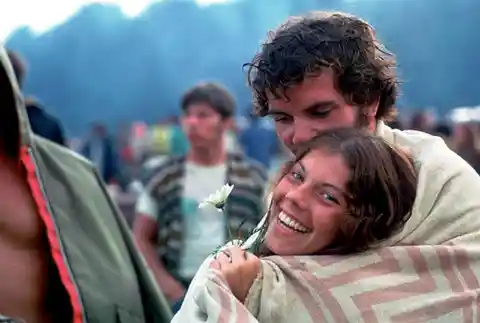
Creedence Clearwater
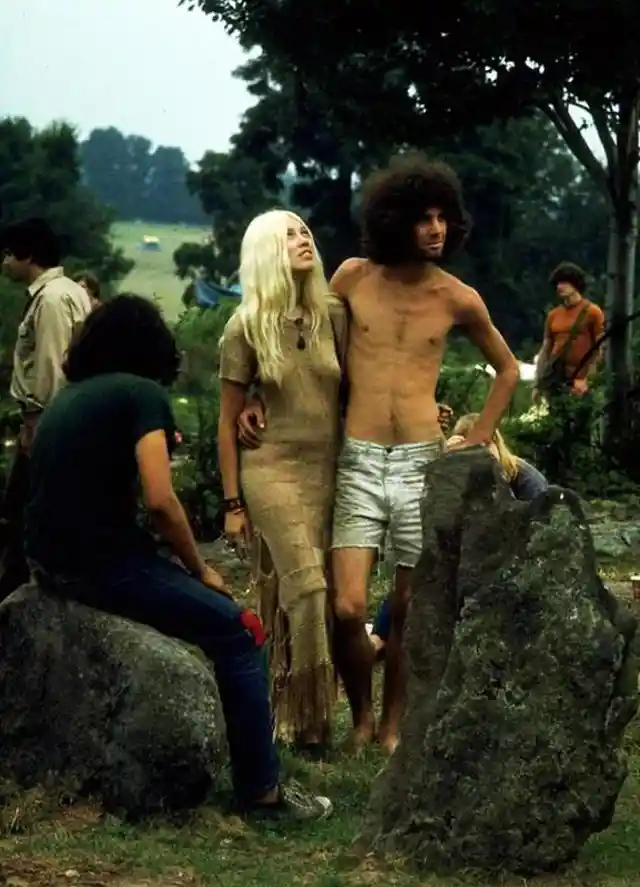
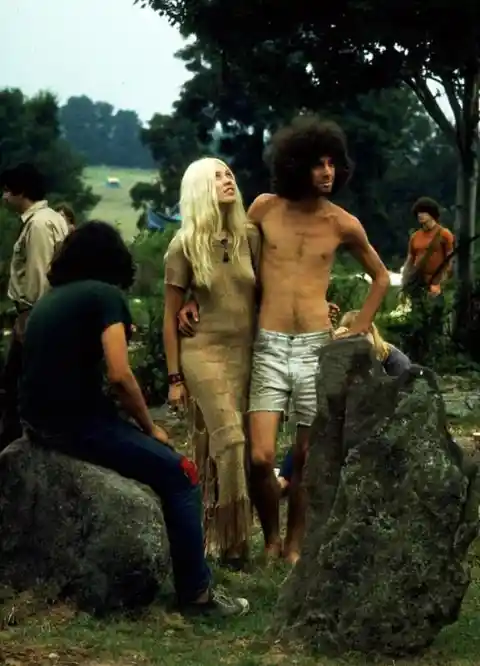
Creedence Clearwater Revival was the first act to sign a contract for the event for $10,000.
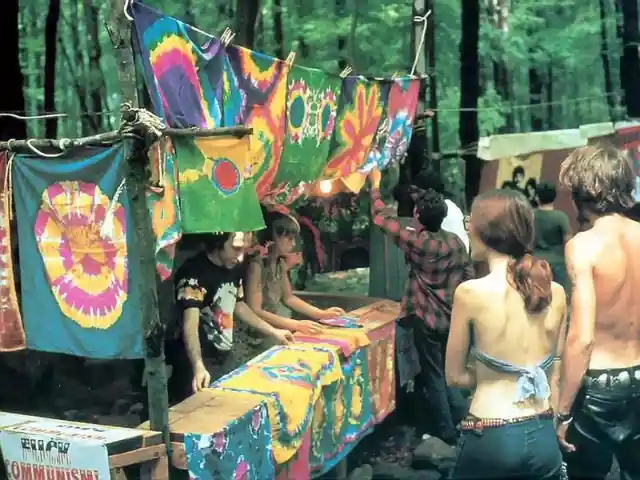
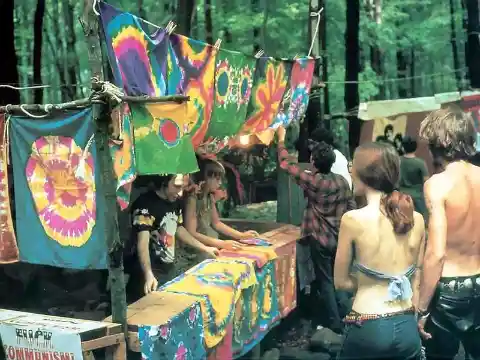
29.
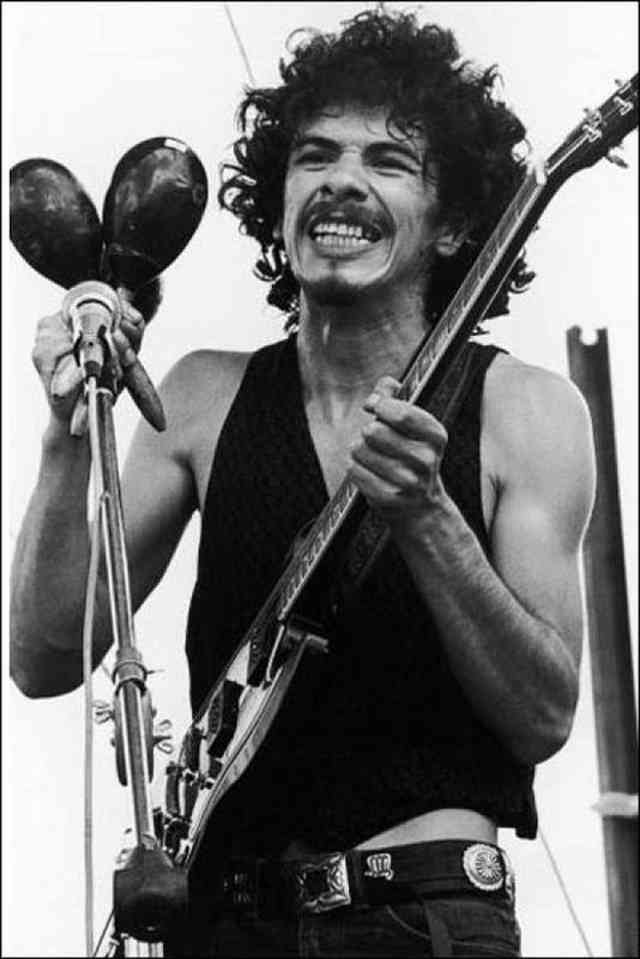
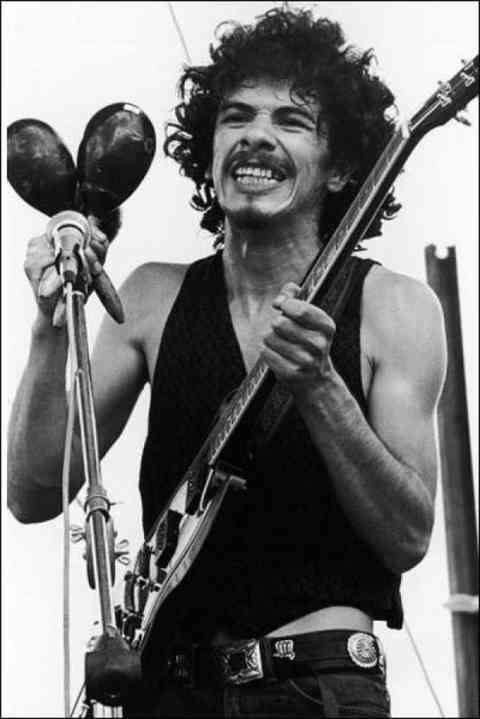
Town officials were originally told that no more than 50,000 would attend the festival.
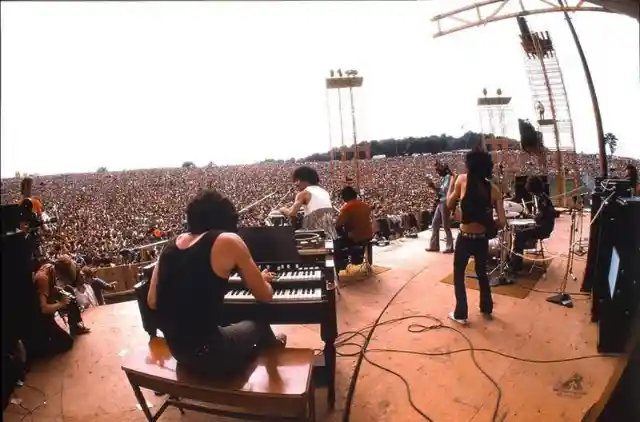
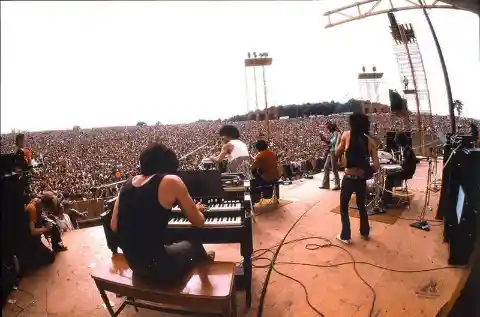
30.
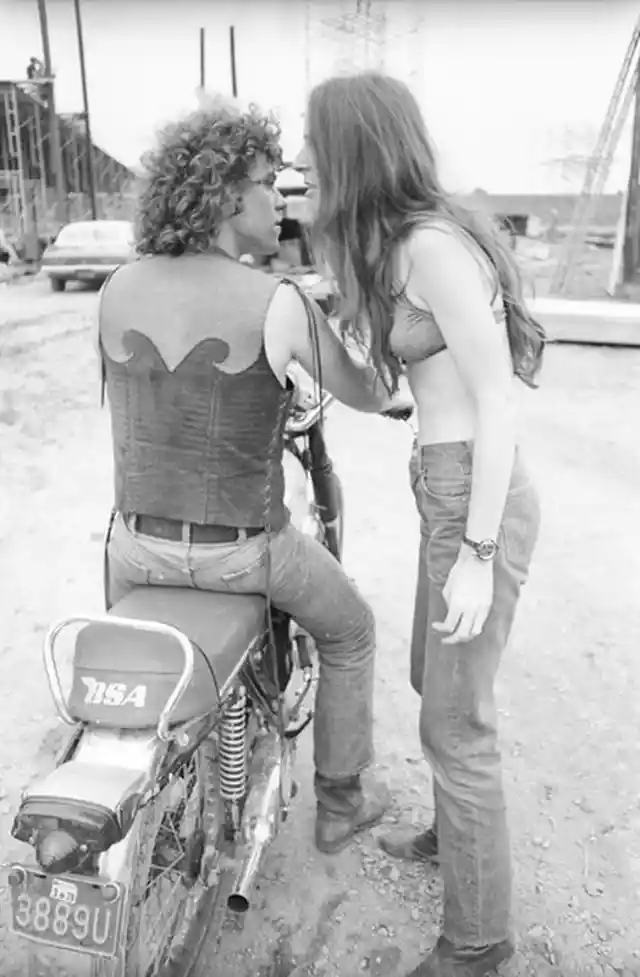
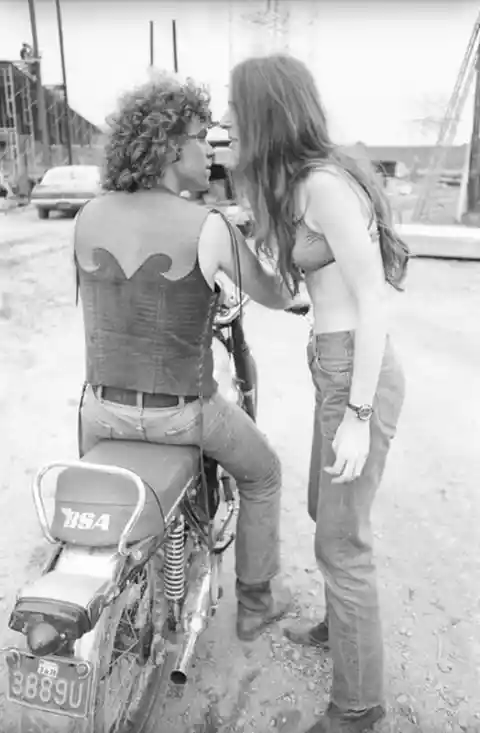
The influx of unexpected attendees created a massive traffic jam.
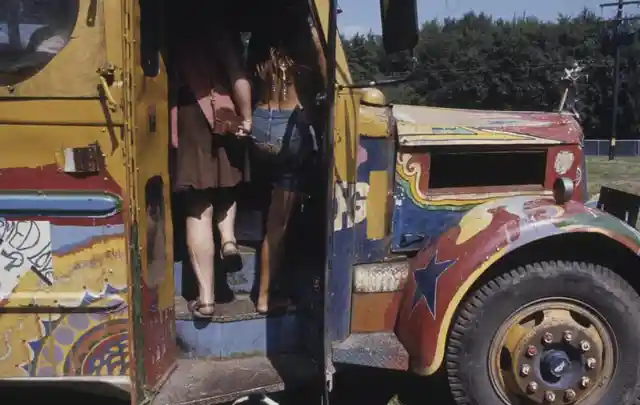
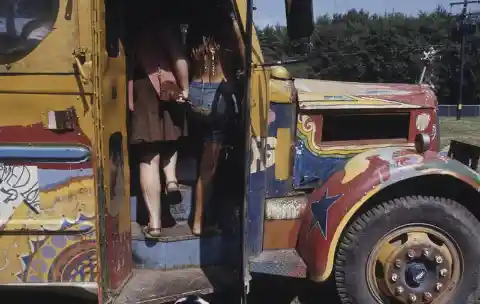
31.
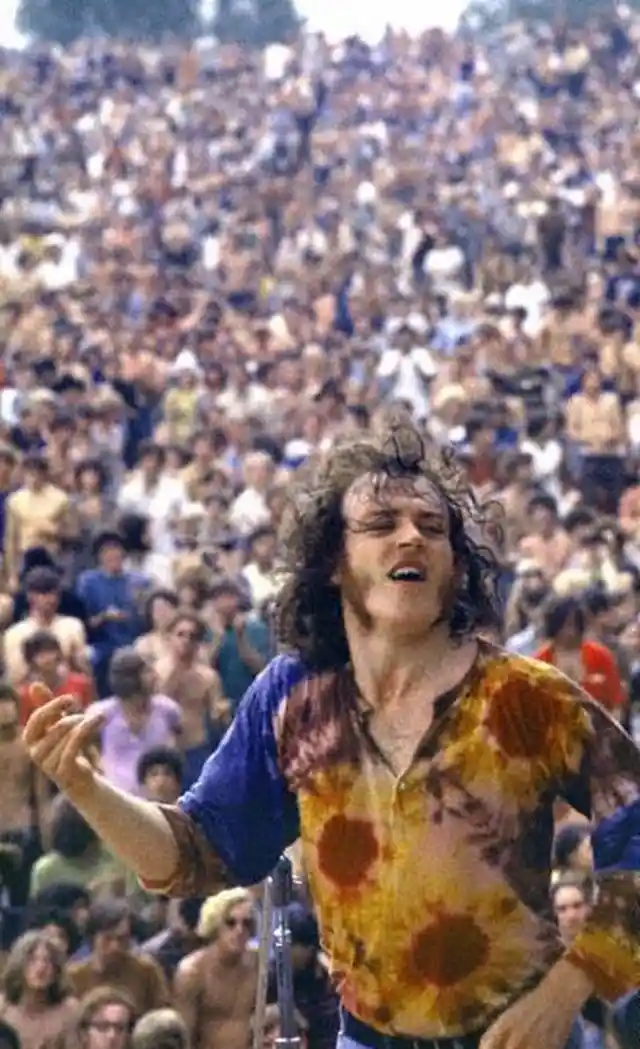
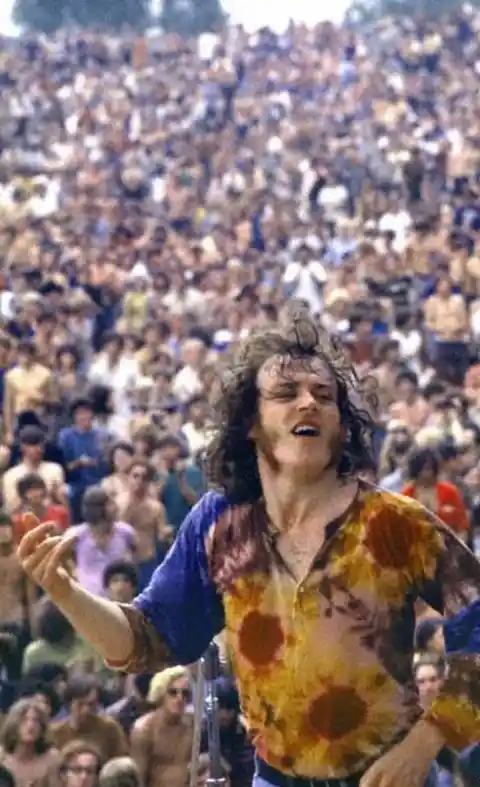
The facilities were not equipped to provide sanitation or first aid for the number of people attending.
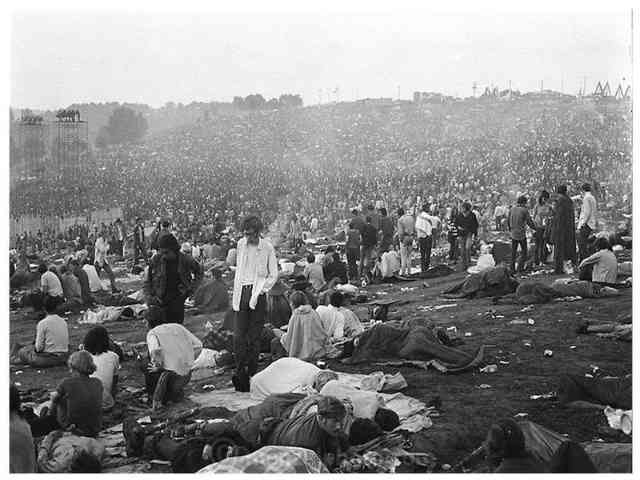
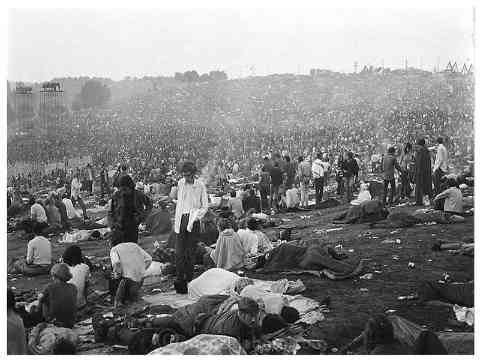
32.
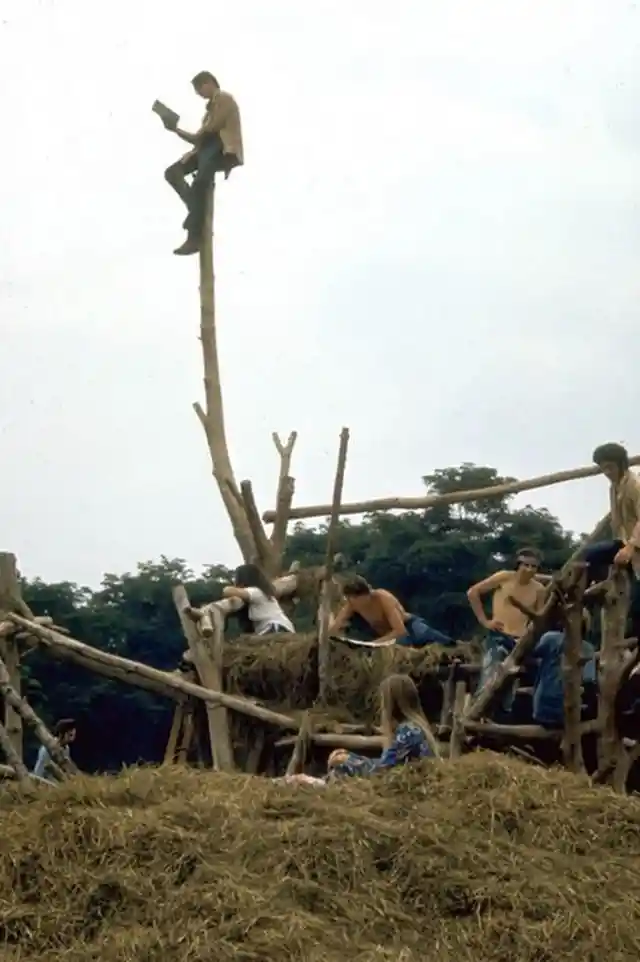
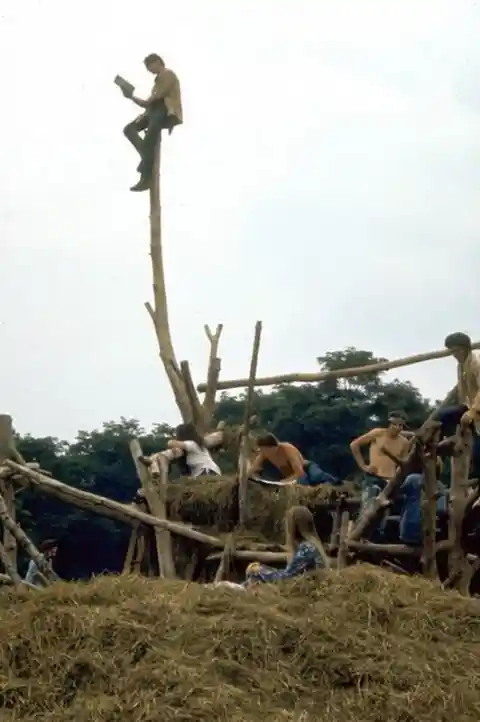
Hundreds of thousands found themselves in a struggle against bad weather, food shortages, and poor sanitation.
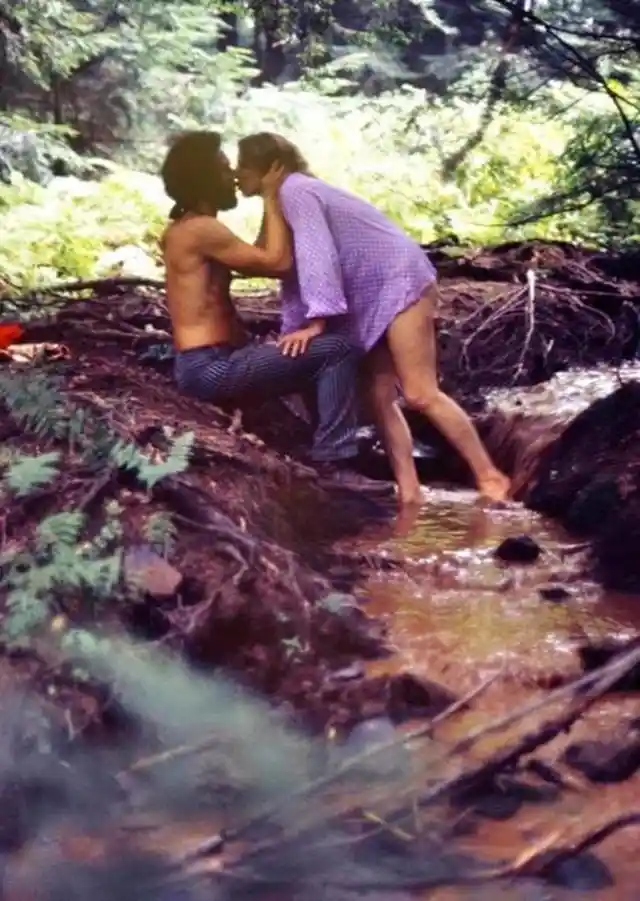
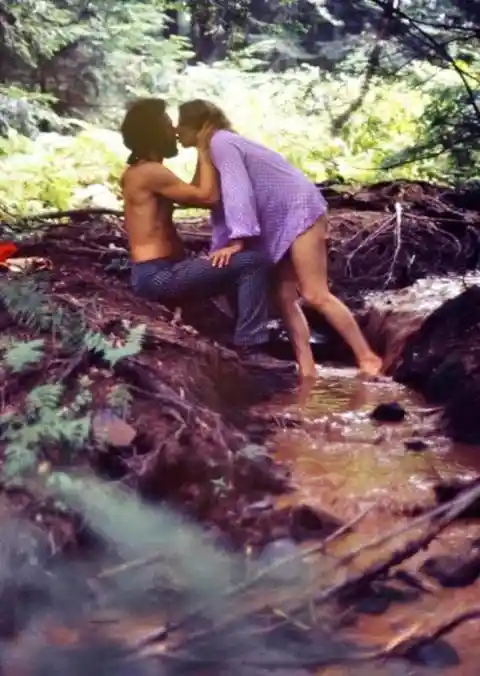
33.
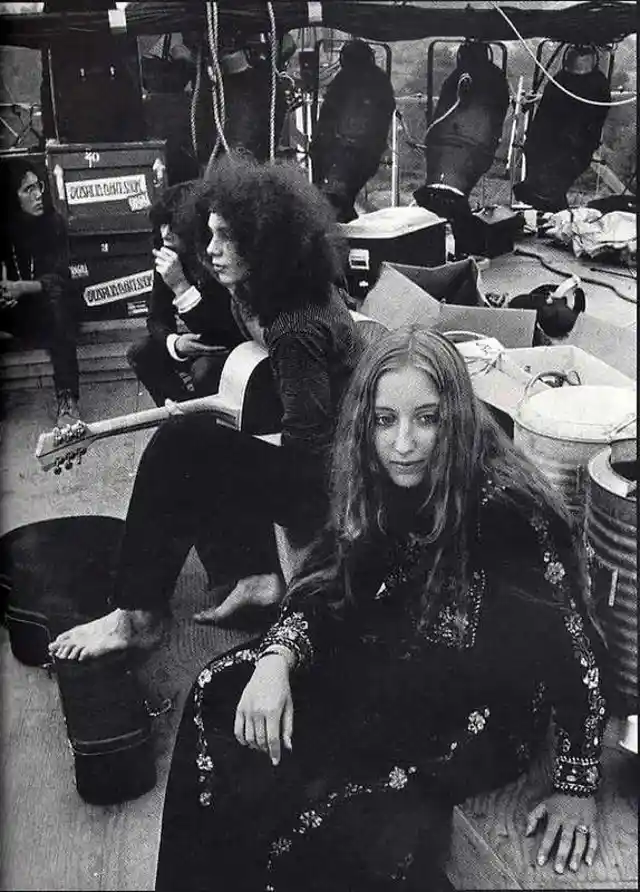
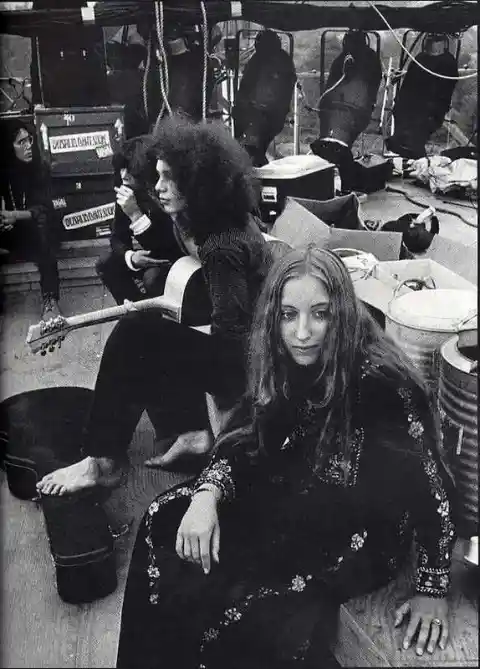
Jimi Hendrix was paid $30,000 for two sets plus $2,000 for expenses.
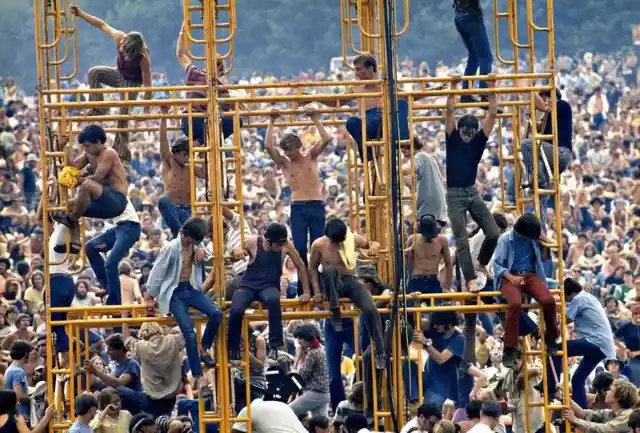
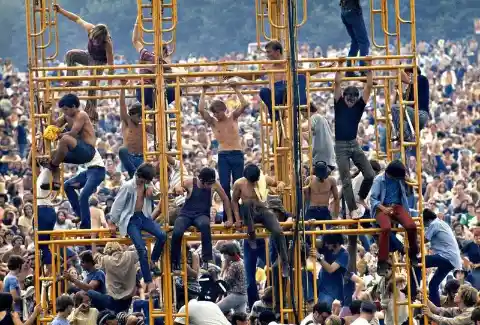
34.
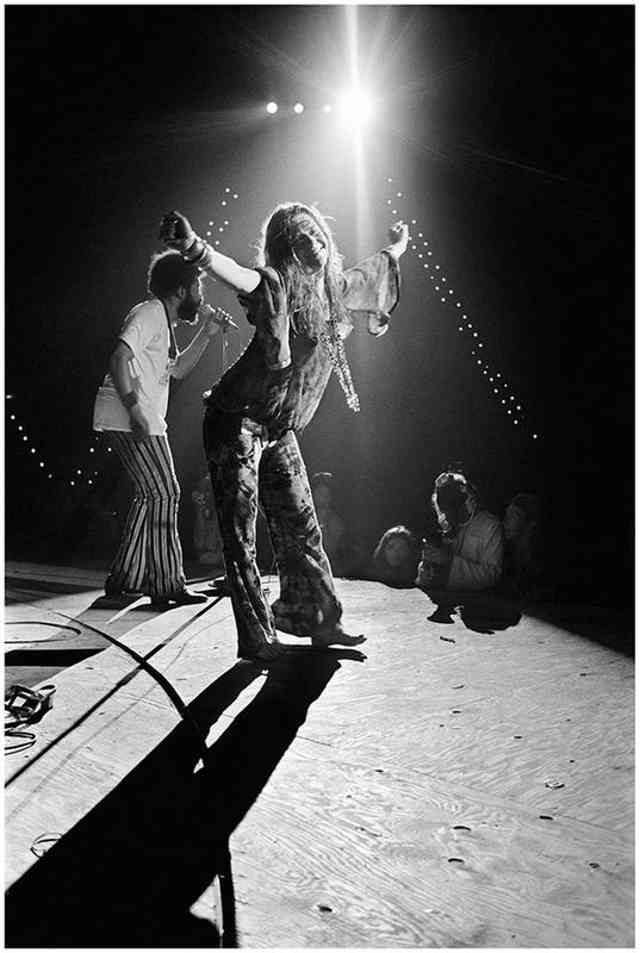
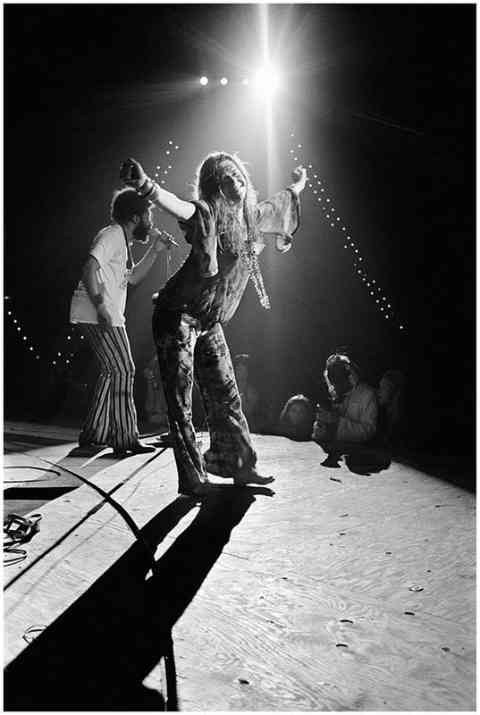
The Band was paid $7,500.
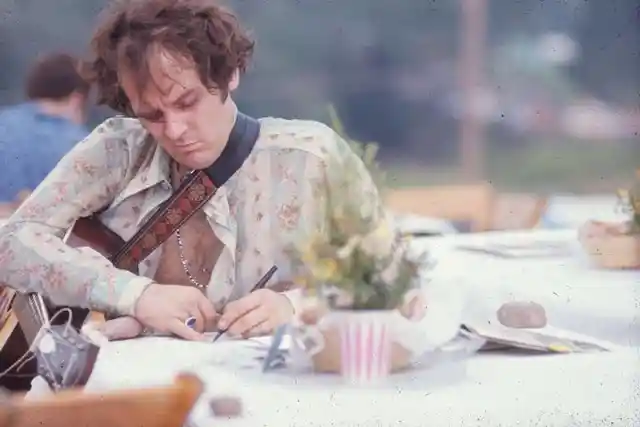
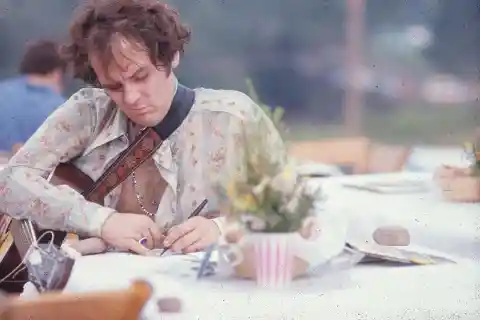
35.
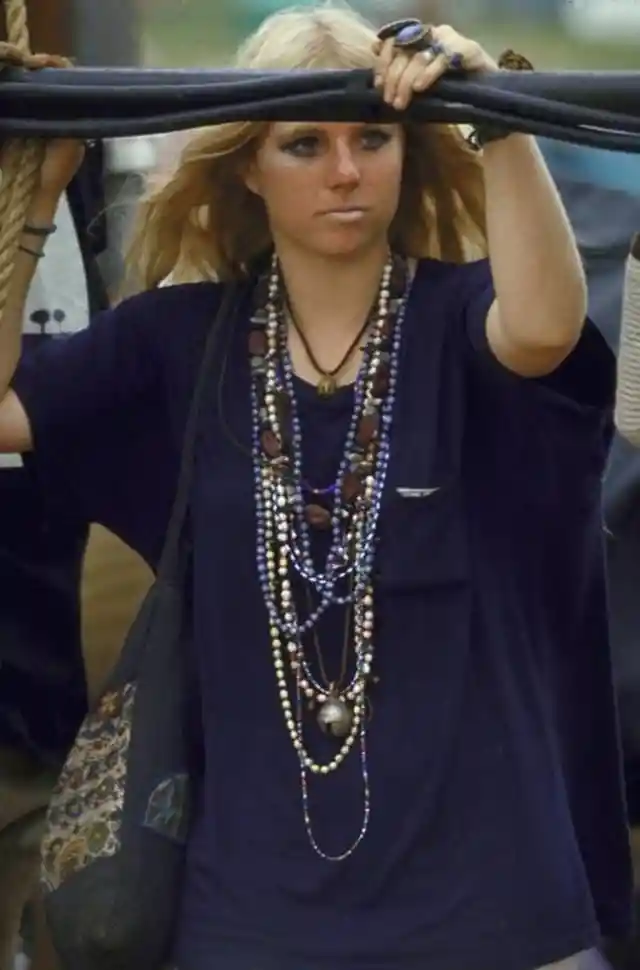
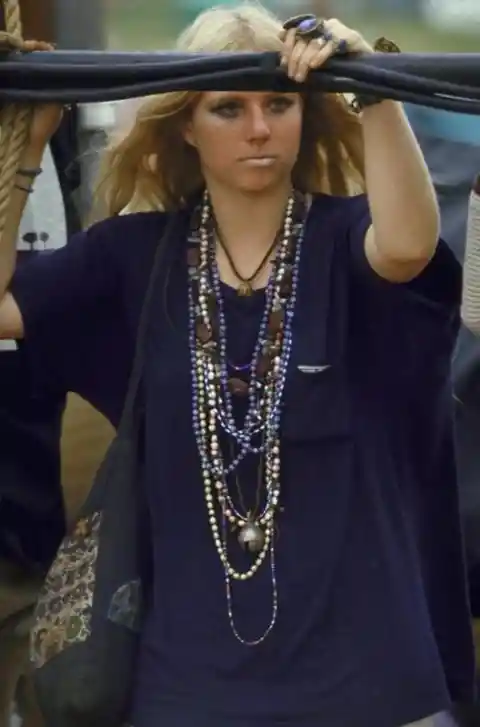
Sly and the Family Stone were paid $7,000.
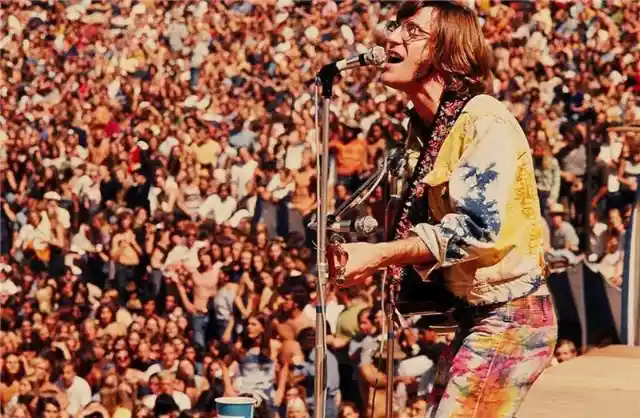
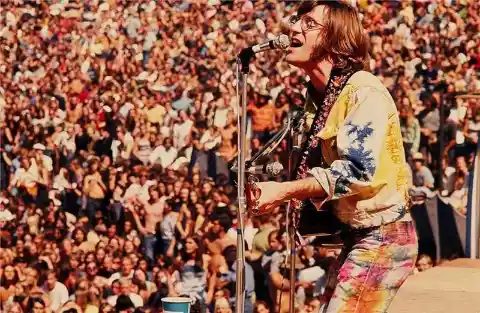
36.
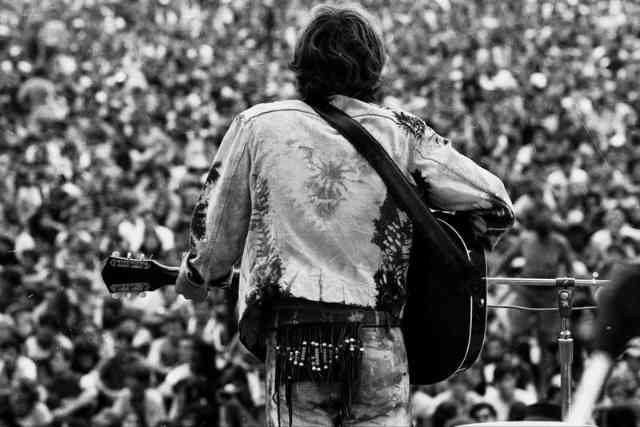
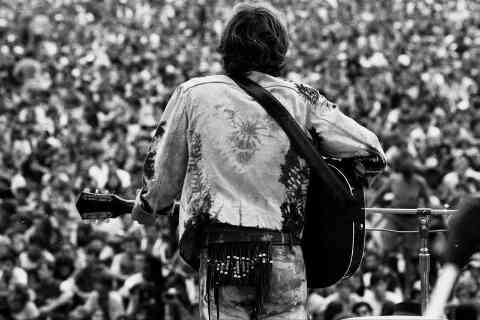
The Who was paid $6,250.
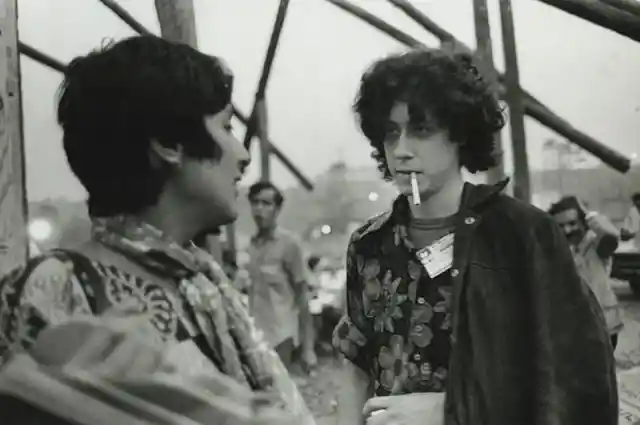
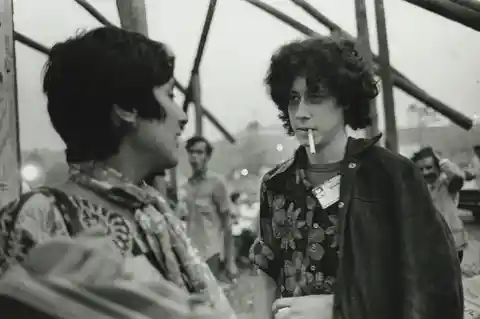
37.
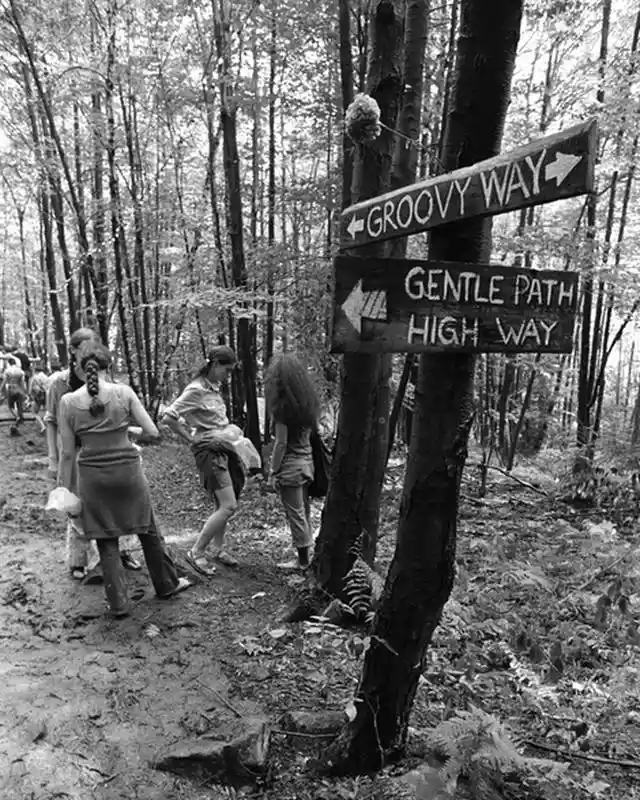
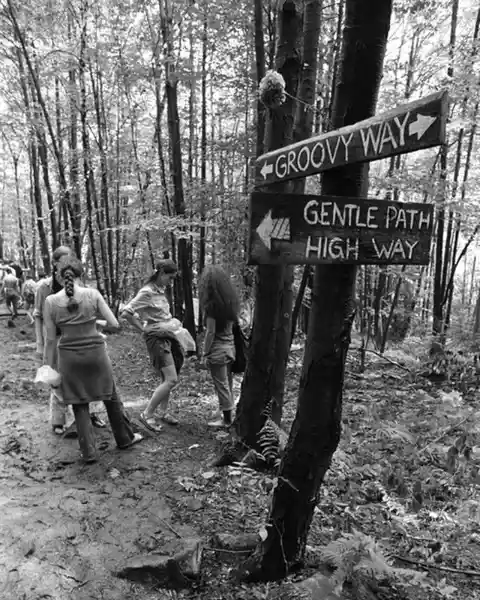
Crosby, Stills, Nash & Young were paid $5,000.
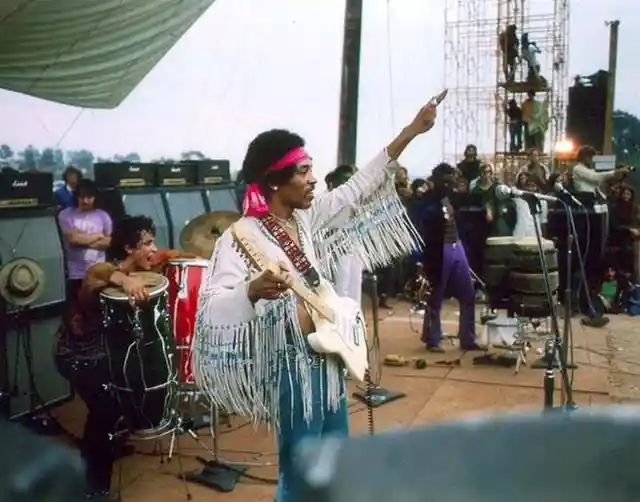
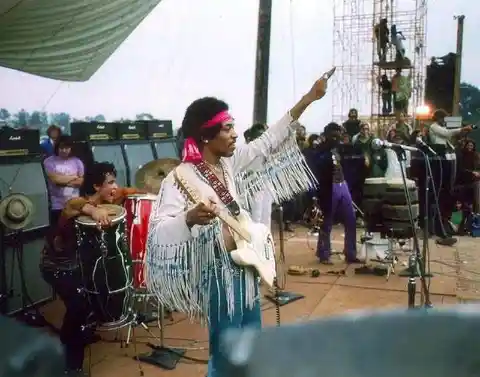
38.
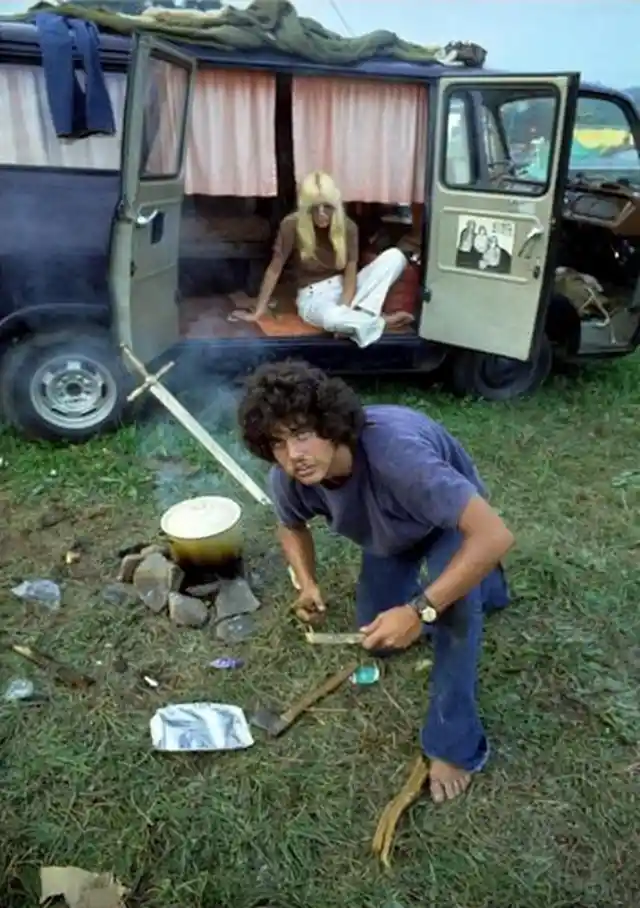
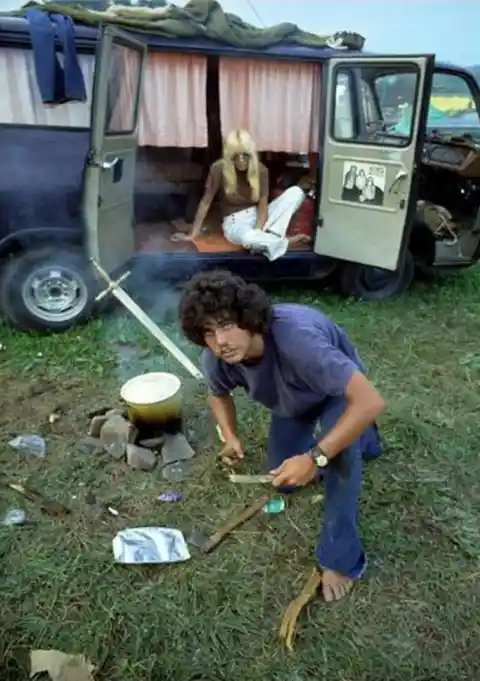
Joe Cocker was paid $1,375.
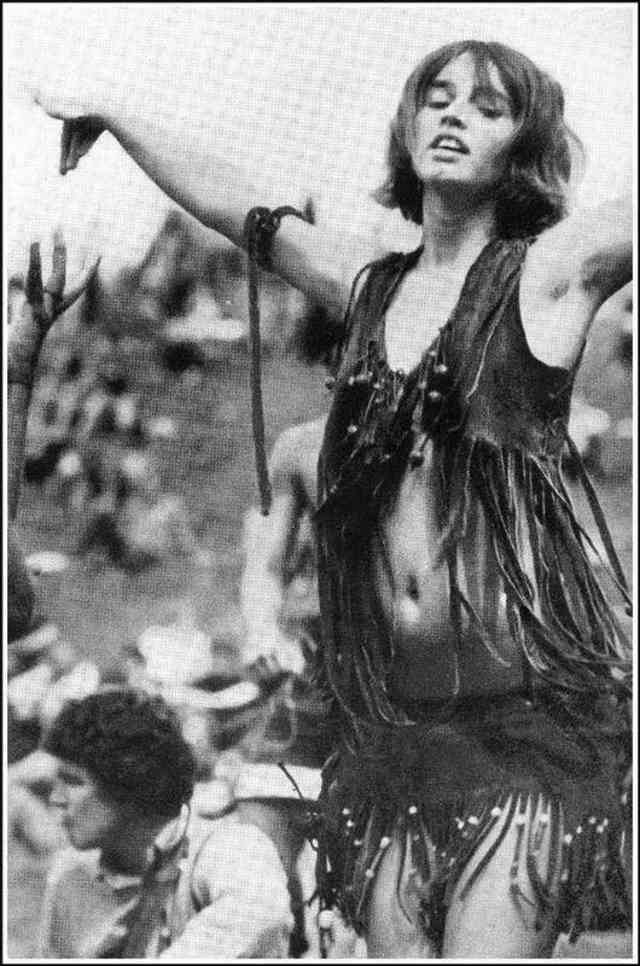
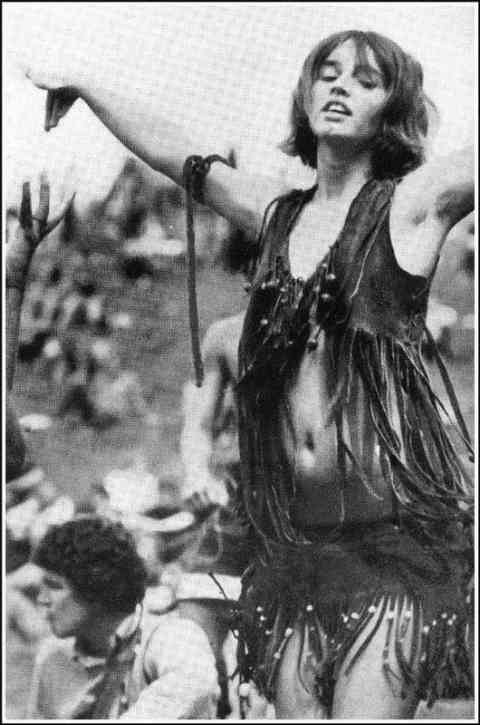
39.
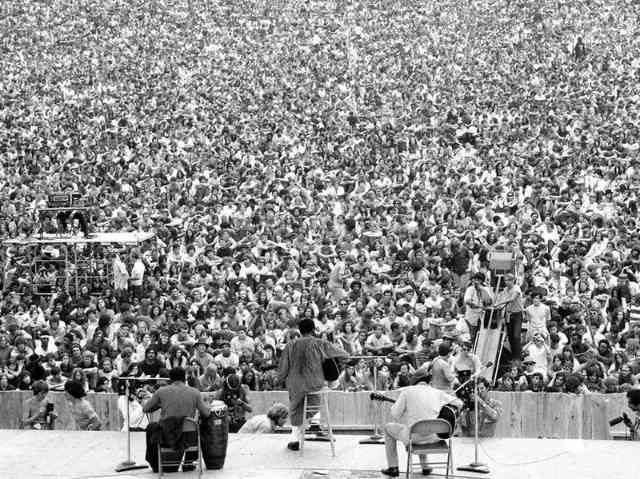
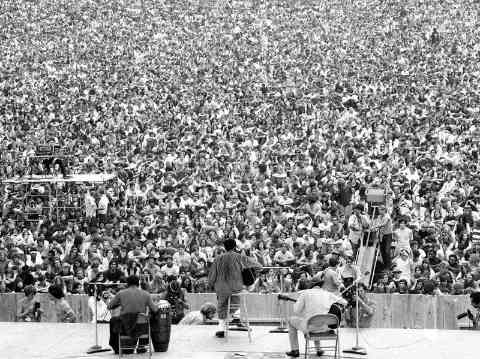
Santana was paid $750.
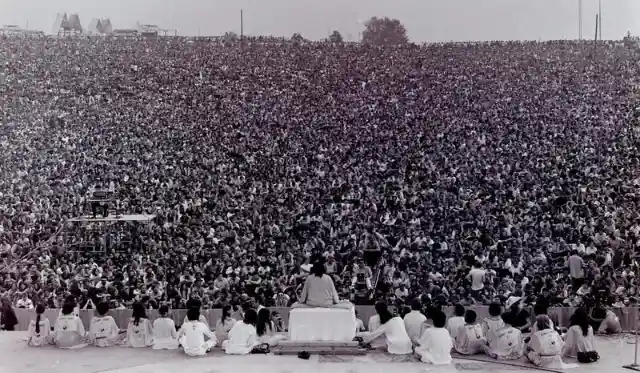
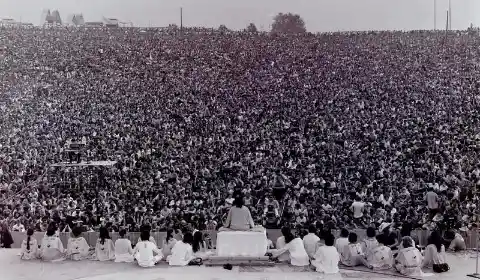
Poster Designers
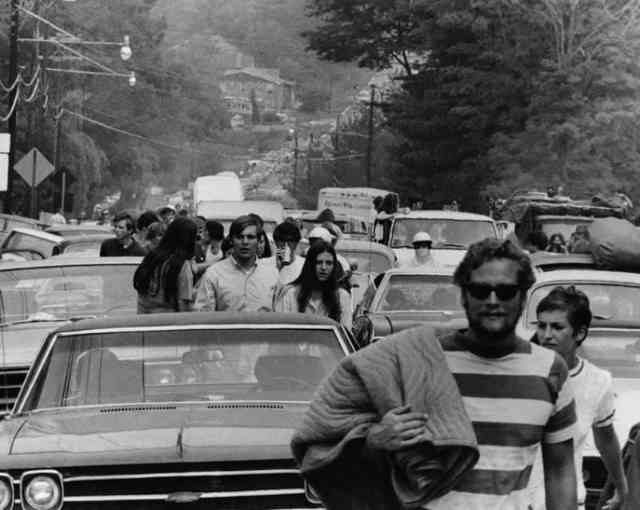
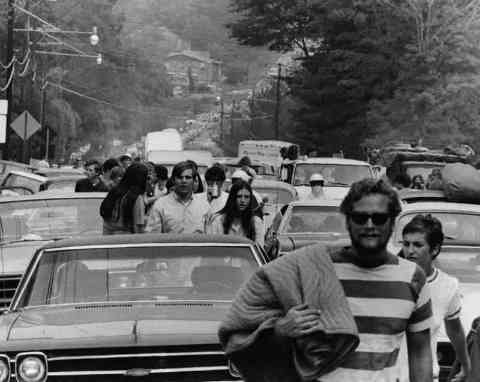
David Edward Byrd, the house artist at Bill Graham’s Fillmore East, was commissioned to design the poster for the original Woodstock Festival.
40.
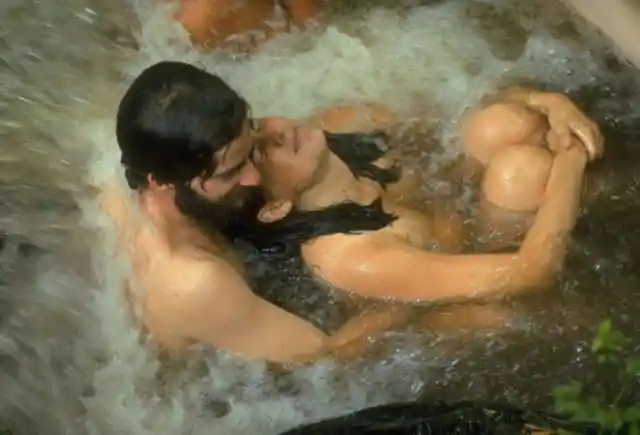
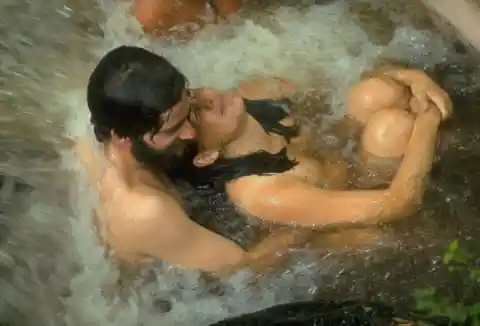
Ravi Shankar was paid $4,500.
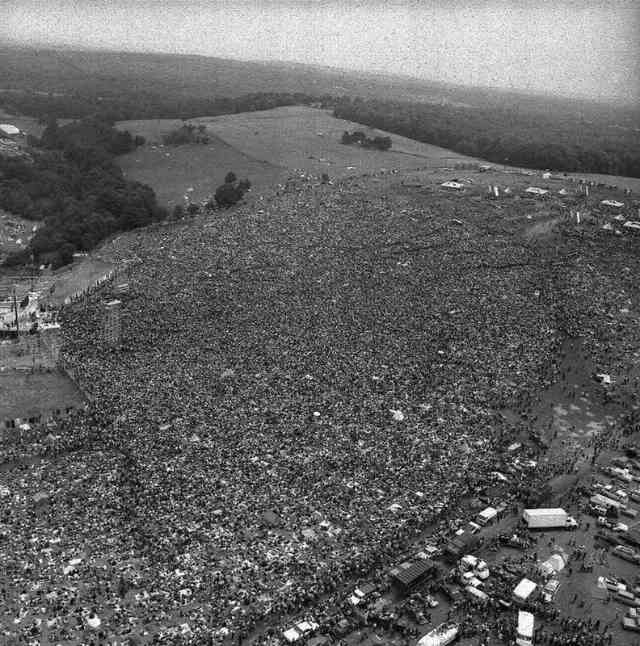
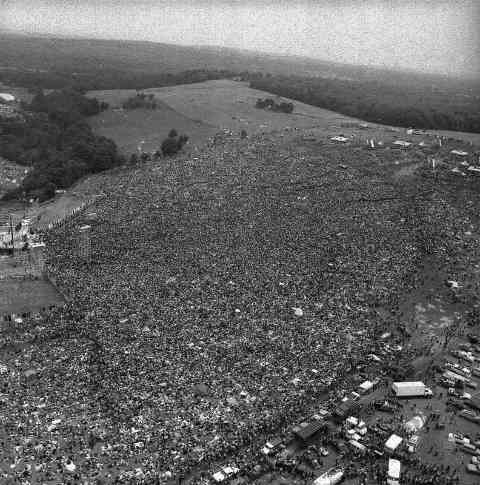
41.
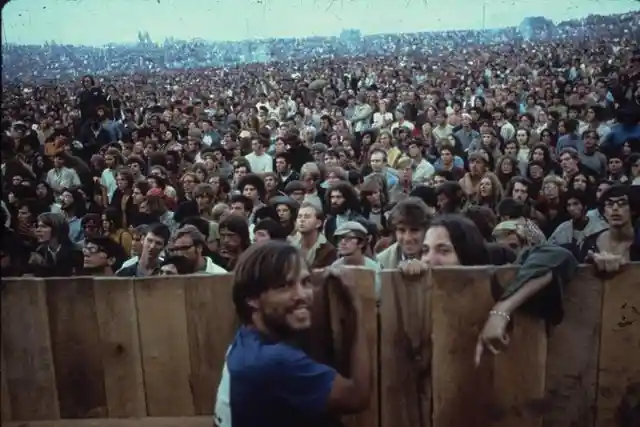
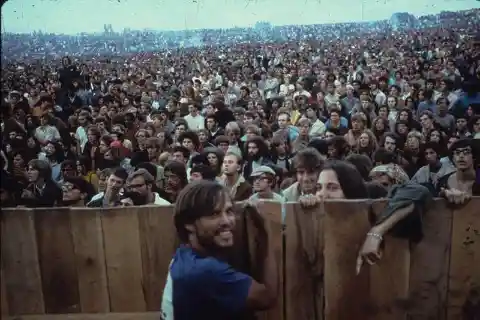
The Doors were asked to perform but canceled at the last moment.
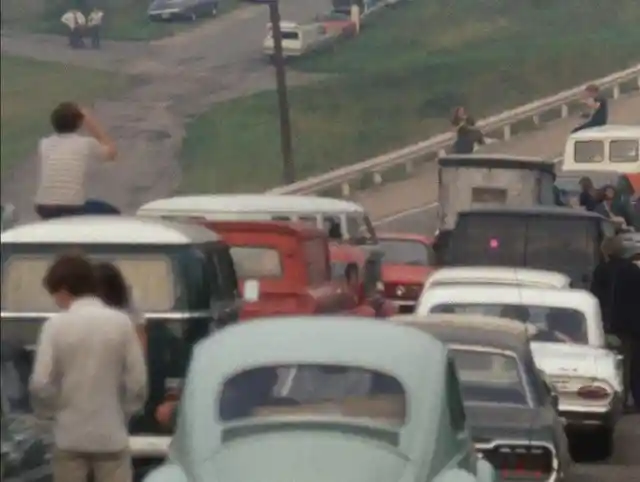
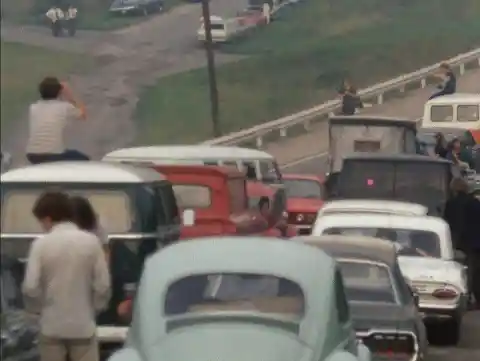
42.
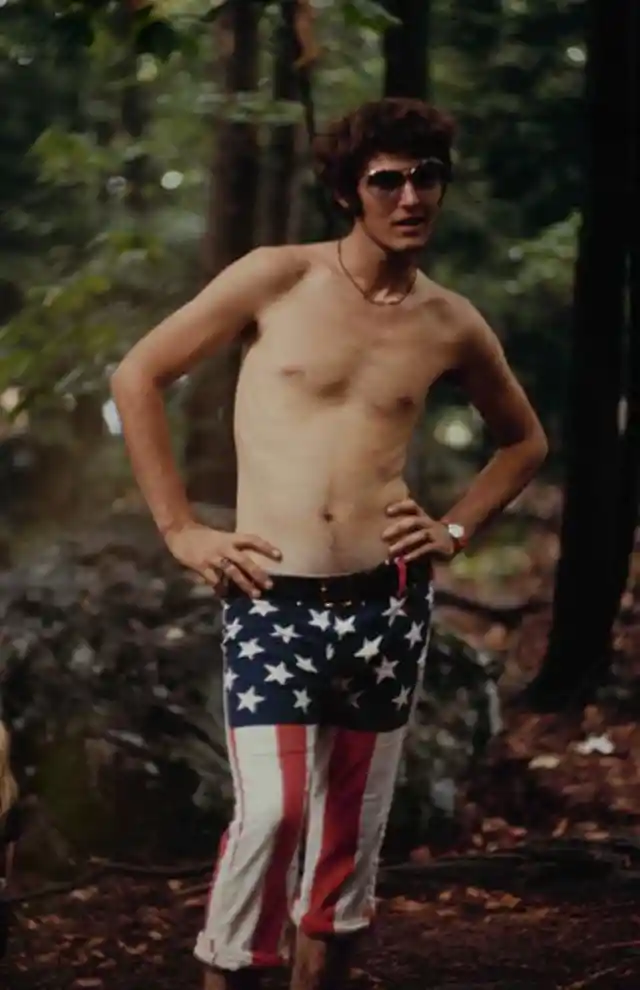
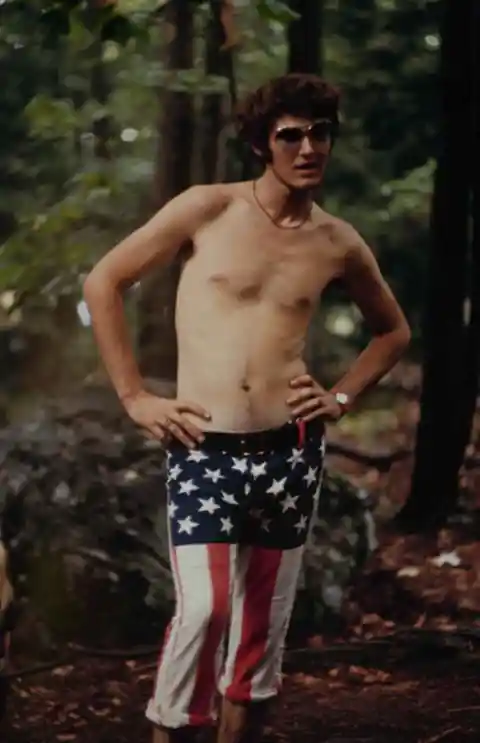
Led Zeppelin and Chicago were also asked to perform, but could not make it.
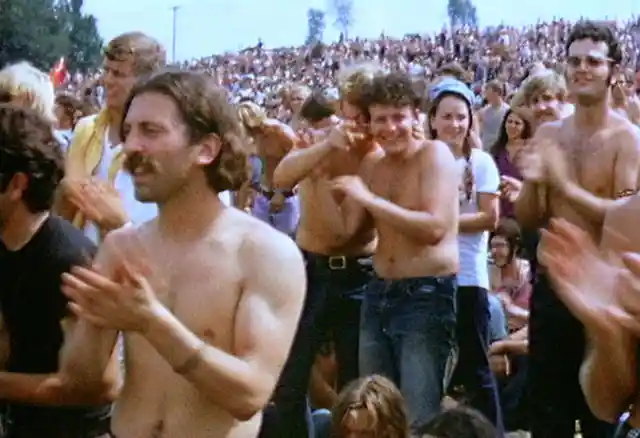
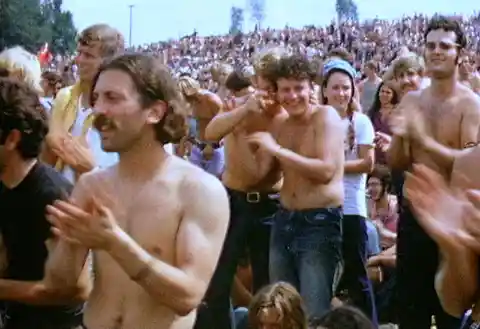
The Closing
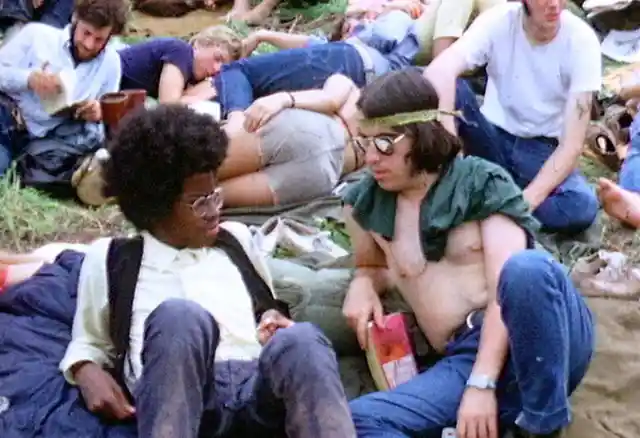
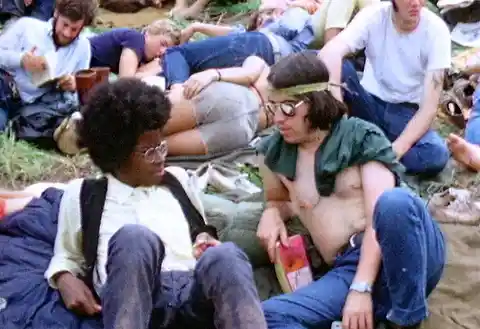
Any decent flower child worth their name was there to protest against the Vietnam war abroad and racial tension at home.
Downpour
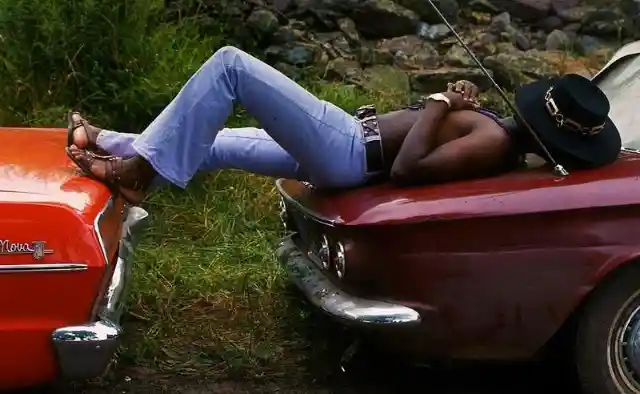
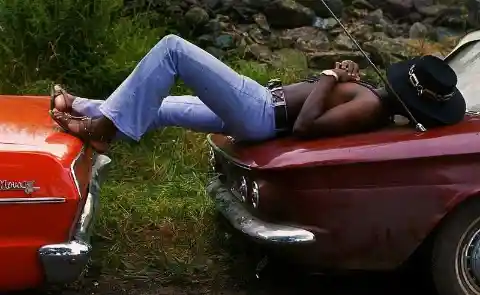
During the downpour there were fears some artists would get electrocuted. Alvin Lee, of Ten Years After, was warned of the risk as it was still raining when his turn came to go on.
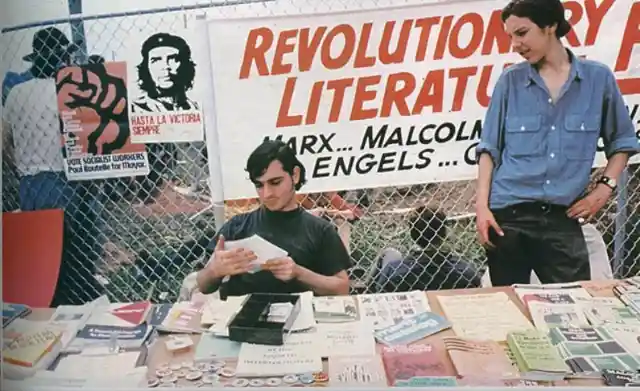
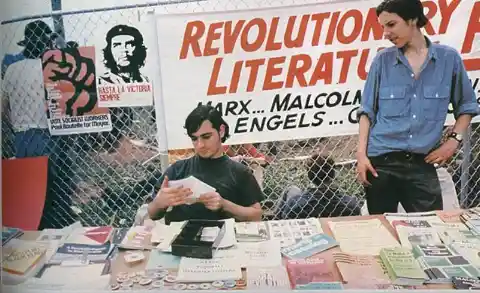
'Oh come on, if I get electrocuted at Woodstock we'll sell lots of records,' he said.
